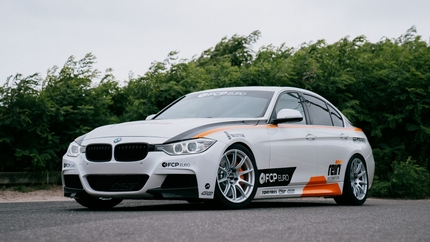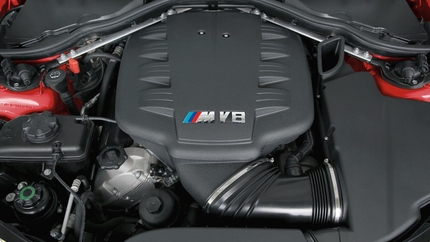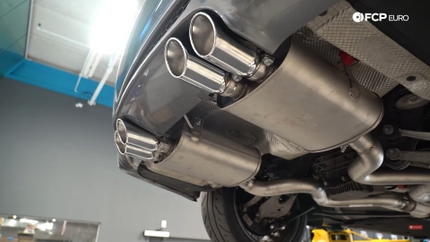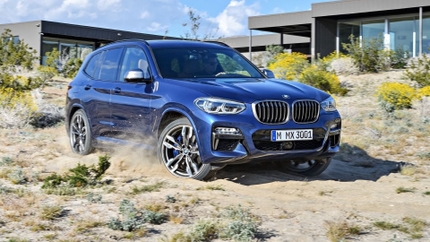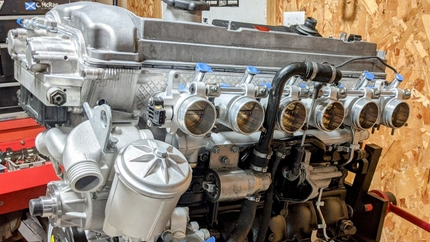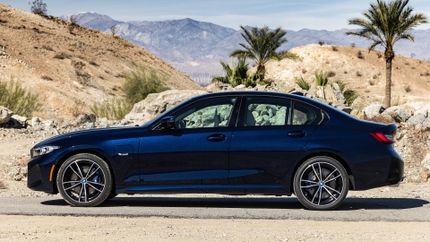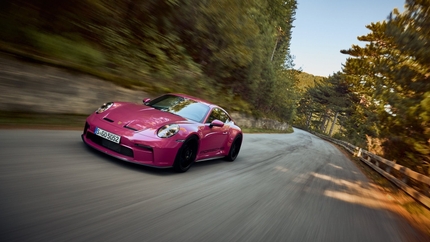When everyone else in this brave new world seems to be focused on flash and floss, this E3 BMW Bavaria reminds us to respect our elders. Sound advice.
The BMW E3 Bavaria (aka New Six) was introduced in 1971 specifically for the American market. It was a hybrid of the no-frills 2500 chassis and the larger 2800 sedan engine. It was supposed to be a German homage to the American approach to hotrods - a light-weight chassis graced with the largest, straight-six engine possible. Thus was born the Bavaria, and it provided the DNA for what would become BMW’s seminal performance sedan.
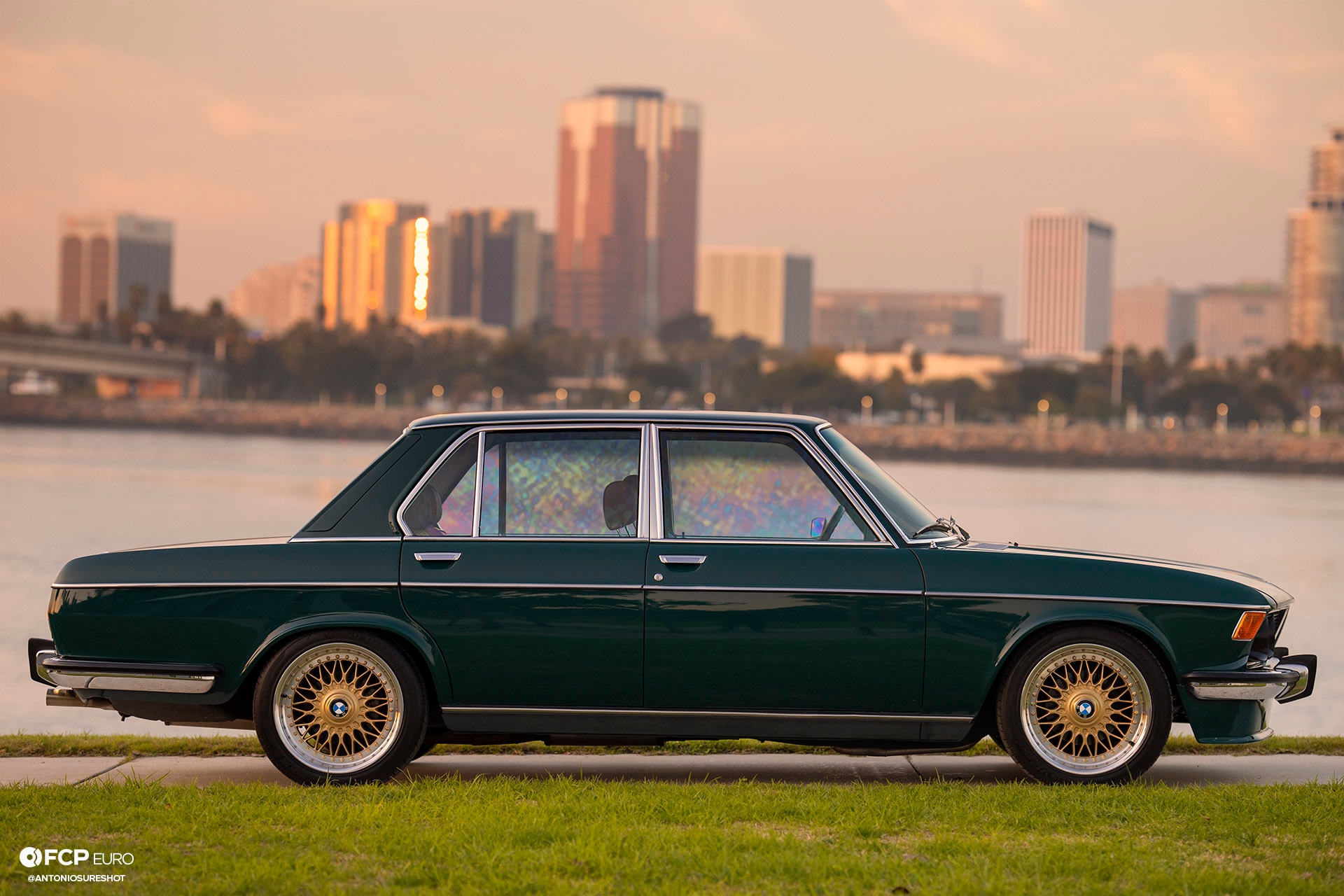
Tim Chinen, the owner of this Bavaria, grew up in a BMW household, literally riding in a car seat in his parents’ 1980 528i. He also took his driver’s license test in that car, and it was his daily driver for years. Was there ever any real question of what marque he would choose once he started purchasing his own vehicles?
Although he had been driving an E36 M3 since 2002, the inspiration of a close family friend’s Bavaria was always not far from his thoughts. Finally, in 2009, he was able to purchase this pristine example. The sleek styling, casually aggressive stance and gold mesh wheels (sourced from an E39 five series) speak eloquently of its classic pedigree. What drew Tim’s attention most to the Bavaria platform over others was the fact that other enthusiasts were focused on the 2002s and the E9 CS coupes.
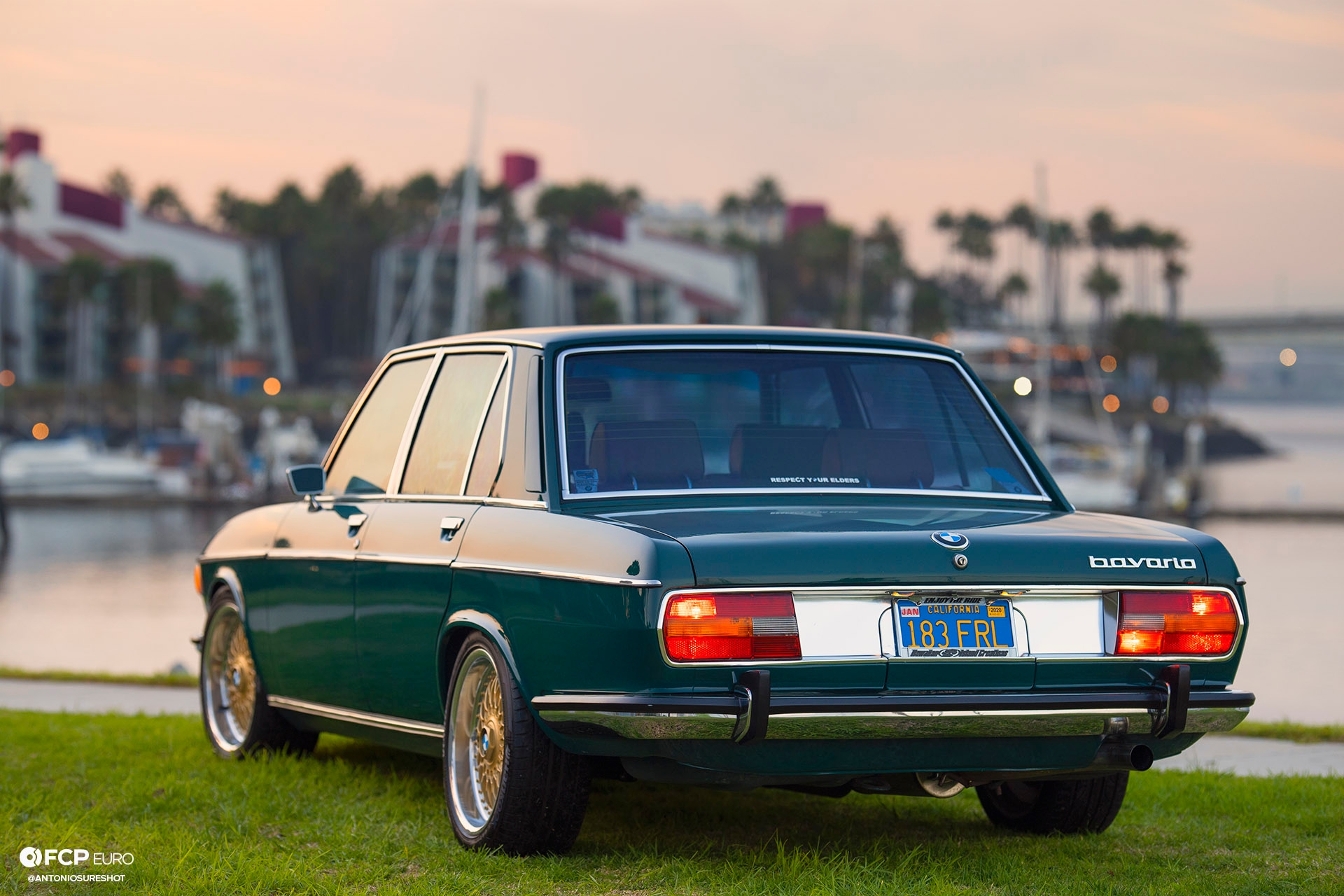
I’ve always been a fan of BMW’s signature stance and ride height. Responsible for providing a portion of that effect, was the Boge Nivomat self-leveling rear suspension. The Nivomat (a melding of the French words niveau and automatique - “automatic leveling”) was a standard option on the Bavaria. Using an internal pump, each shock utilized the travel between the axle and chassis to keep the ride height level while dampening road feedback. It was a cutting edge innovation for its time.
Tim chose to upgrade the suspension to match the upgrades he made in the engine bay. Suspension Techniques supplied the springs and the sway bars while the struts are Bilstein.
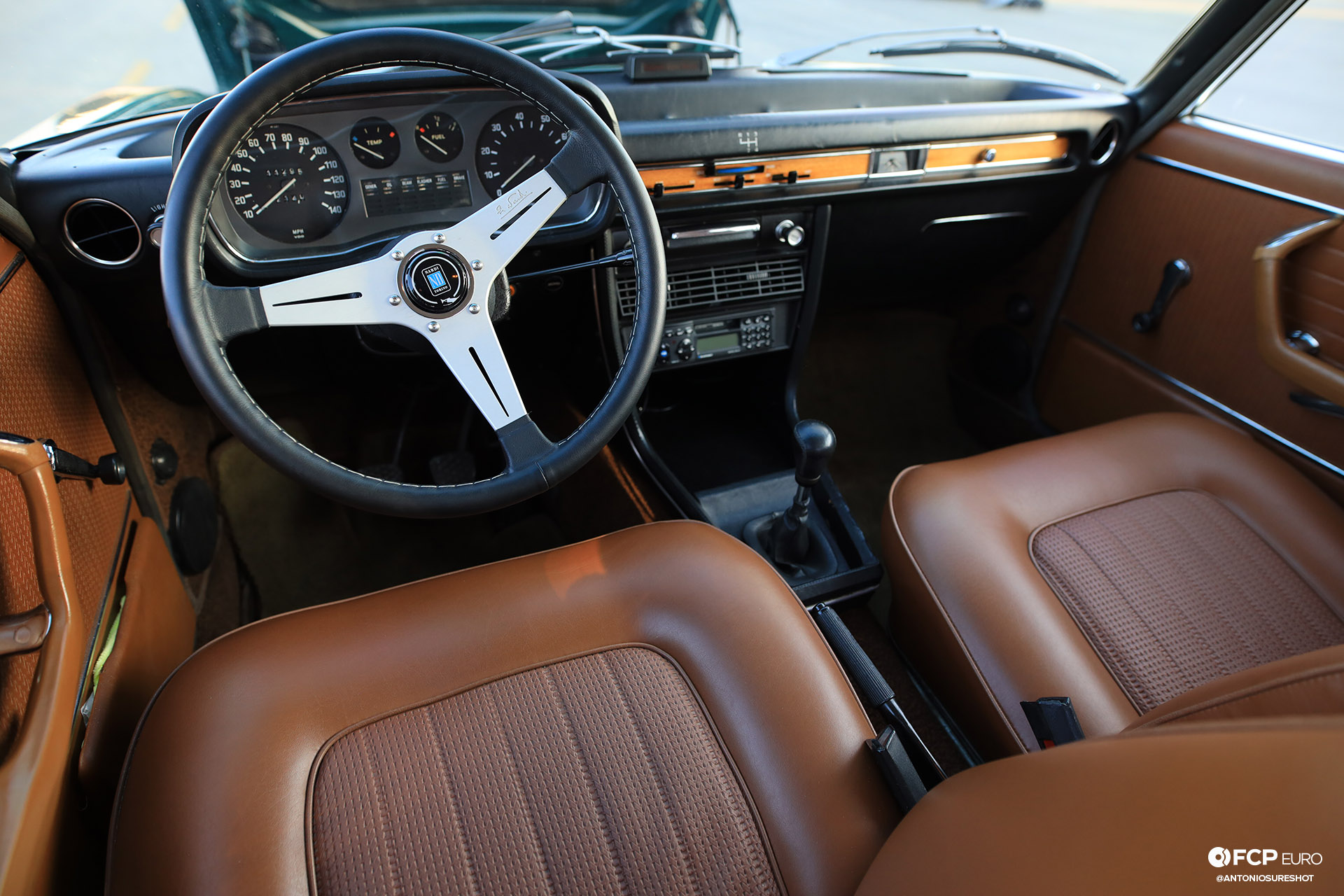
The Bavaria’s cockpit clearly signals that, despite being disguised as a four-door sedan, this is a driver’s car. The Nardi Classic steering wheel is an aftermarket addition, but it looks to be at home amongst the spare efficiency of the dash and driver’s compartment. The overall effect screams German precision - a place for everything and everything in its place.
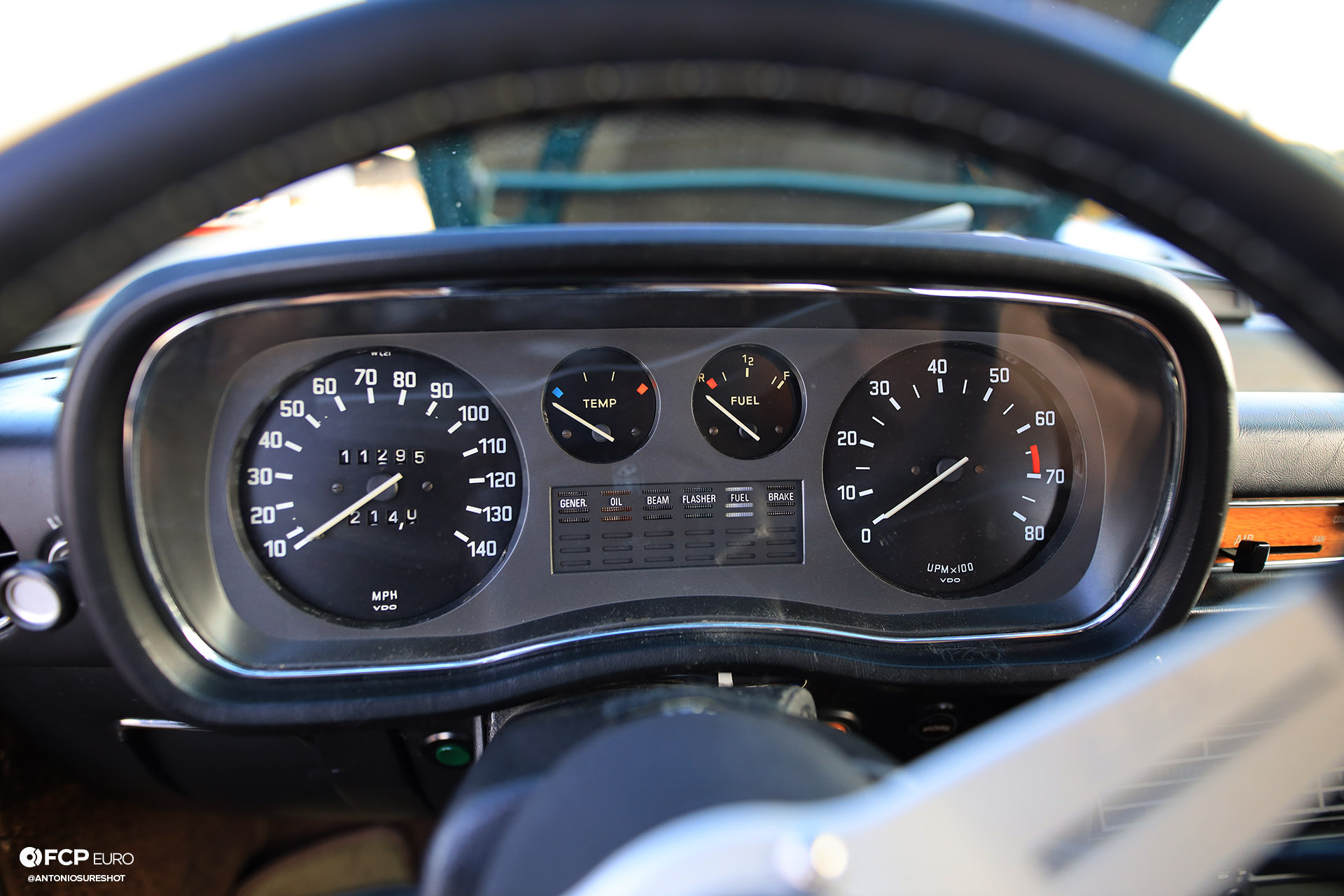
The dashboard is also über-functional with clearly visible, analog OEM VDO gauges that seem uniquely elegant in this present world of high-tech, spacecraft cockpits. Although the modern dashboards and cockpit areas are awesome, with enough computing power and information processing capacity to orchestrate a moon landing, there’s something to be said for the straightforward simplicity of the Bavaria.
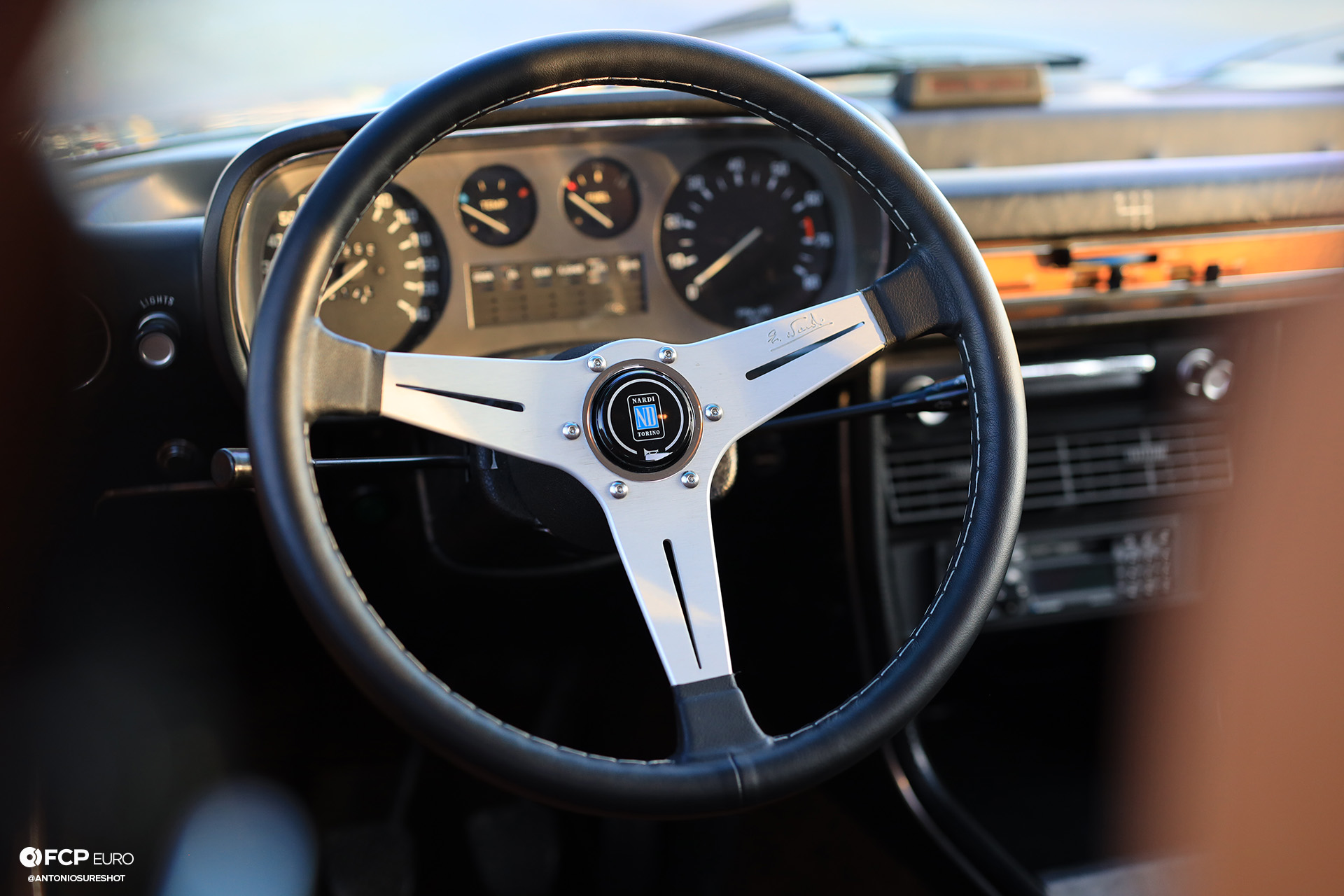
This aftermarket Nardi Classic steering wheel, with its brushed aluminum/black leather trim look, is an eye-popping addition to the interior ambiance. It beautifully amplifies the understated message that this is a driver’s car. Even the stainless steel, button-top Allen bolts (as opposed to the black hex screws supplied with Nardi wheels) drives home the point with subtle flair.
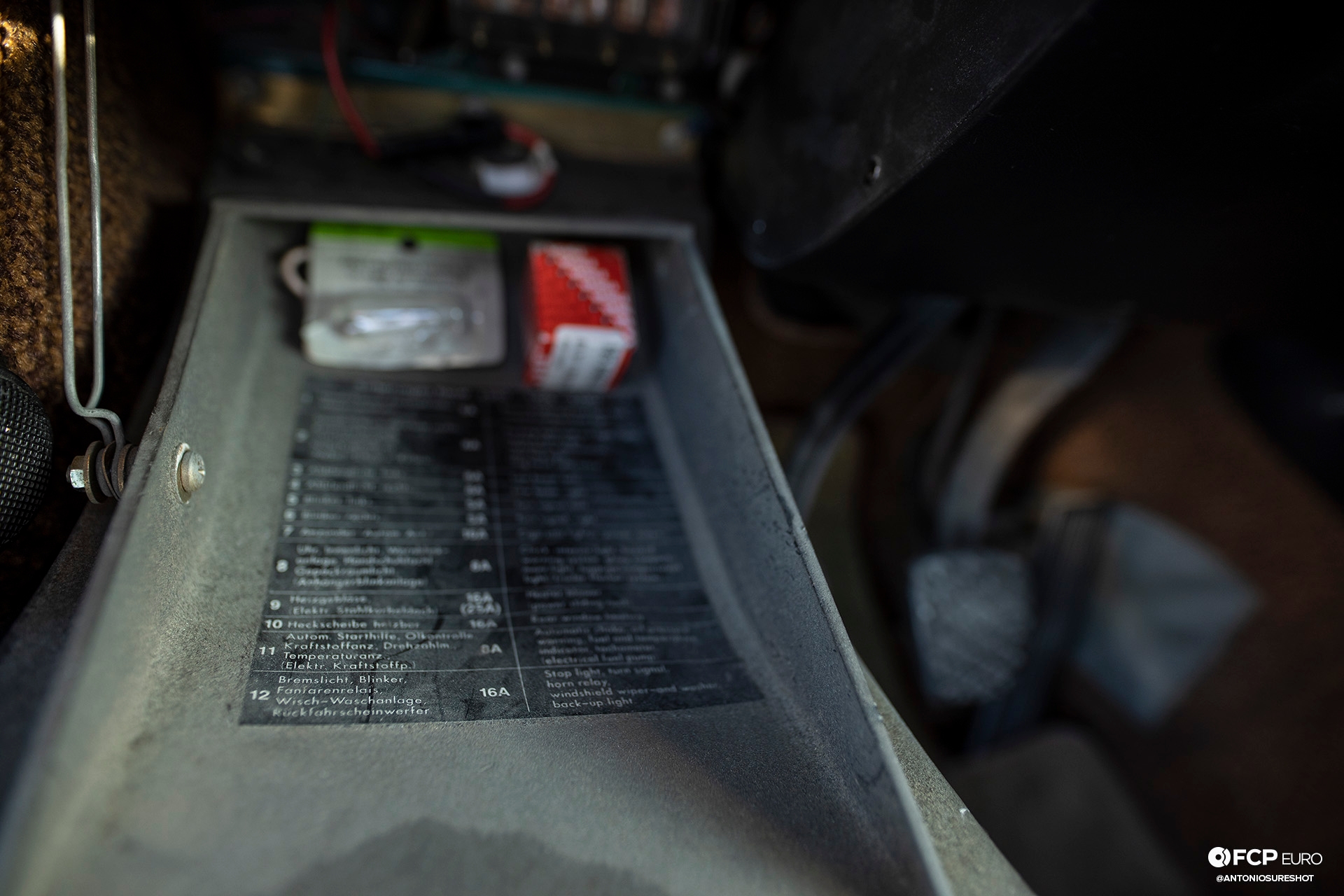
Although the Bavaria came off the factory floor equipped with its own set of tools, this capacious fusebox access panel could easily double as a second glovebox. There’s a quaintness to it all that hearkens to a simpler time.
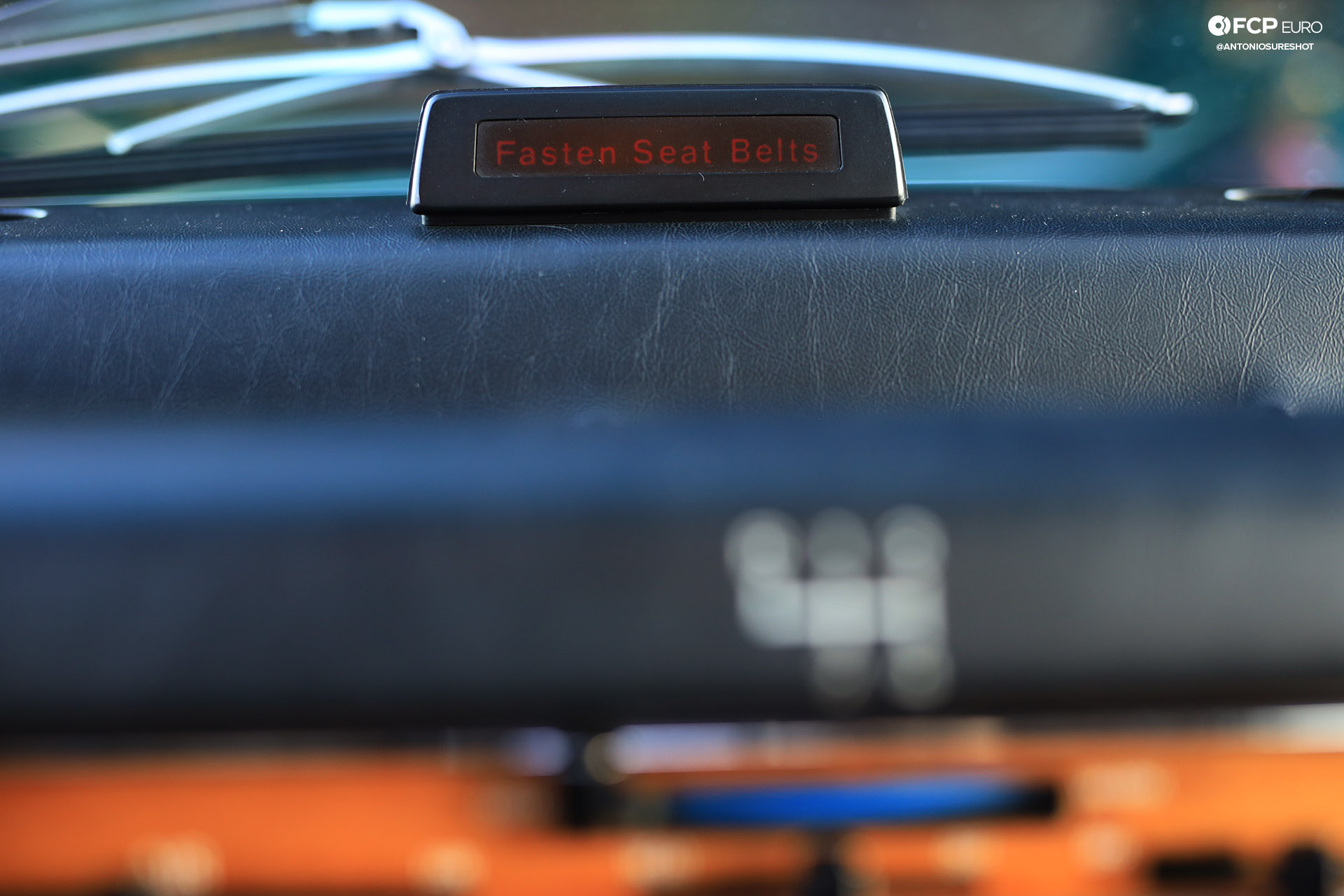
As Tim made so clear to us, “…very few of these cars have survived, especially ones that are not rust buckets or in need of a complete restoration.” To find one in such remarkable condition is amazing. This lone "Fasten Seat Belts" display was probably somewhat futuristic for the time it was introduced, but now it strikes such a nostalgia-inducing note for anyone who remembers this look.
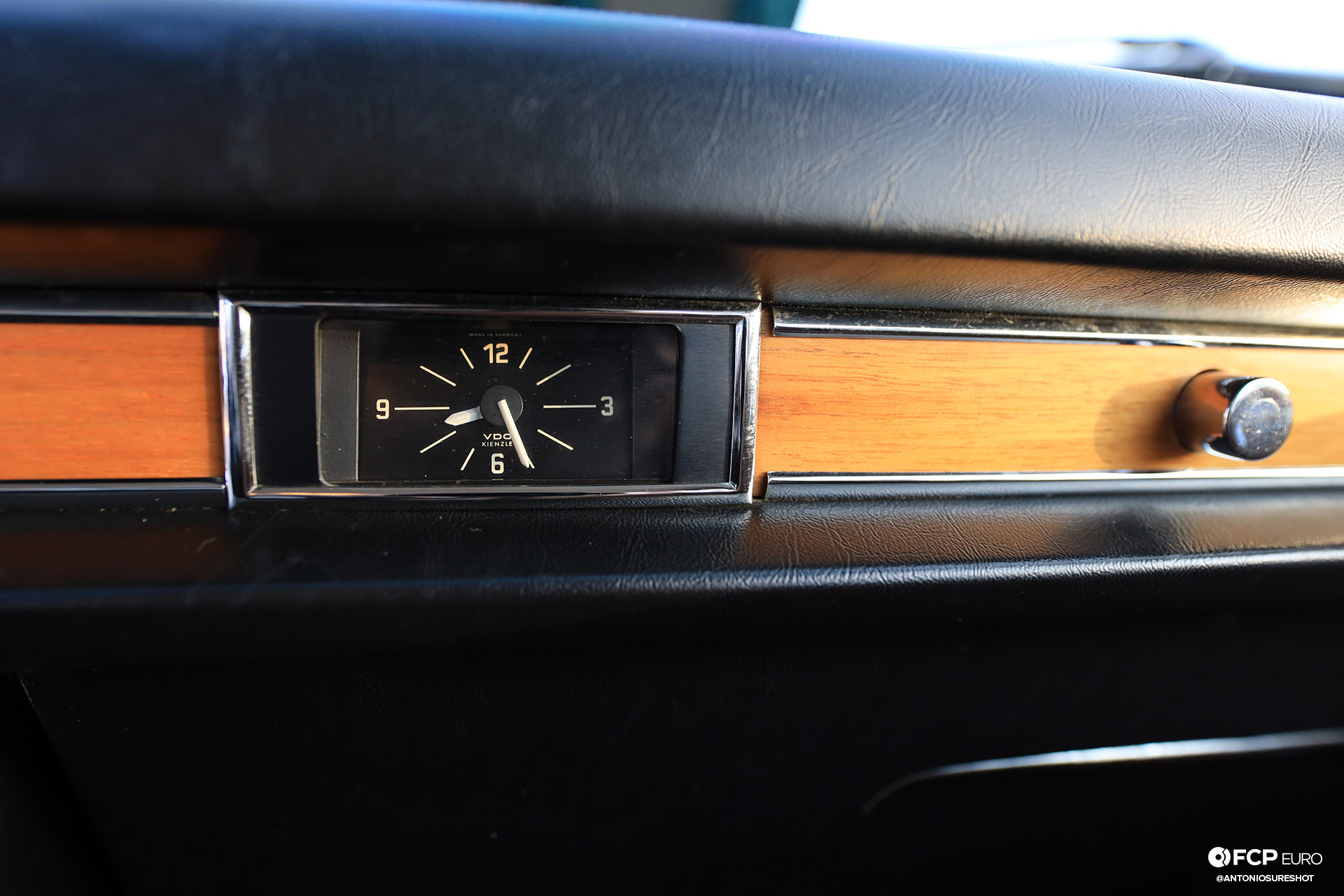
This VDO, in-dash, analog clock is also nostalgia-inducing. Surrounded by the original, real wood paneling, it hearkens to a mechanical world that was at the beginnings of the transition to the digital - from Industrial Revolution to Information Age.
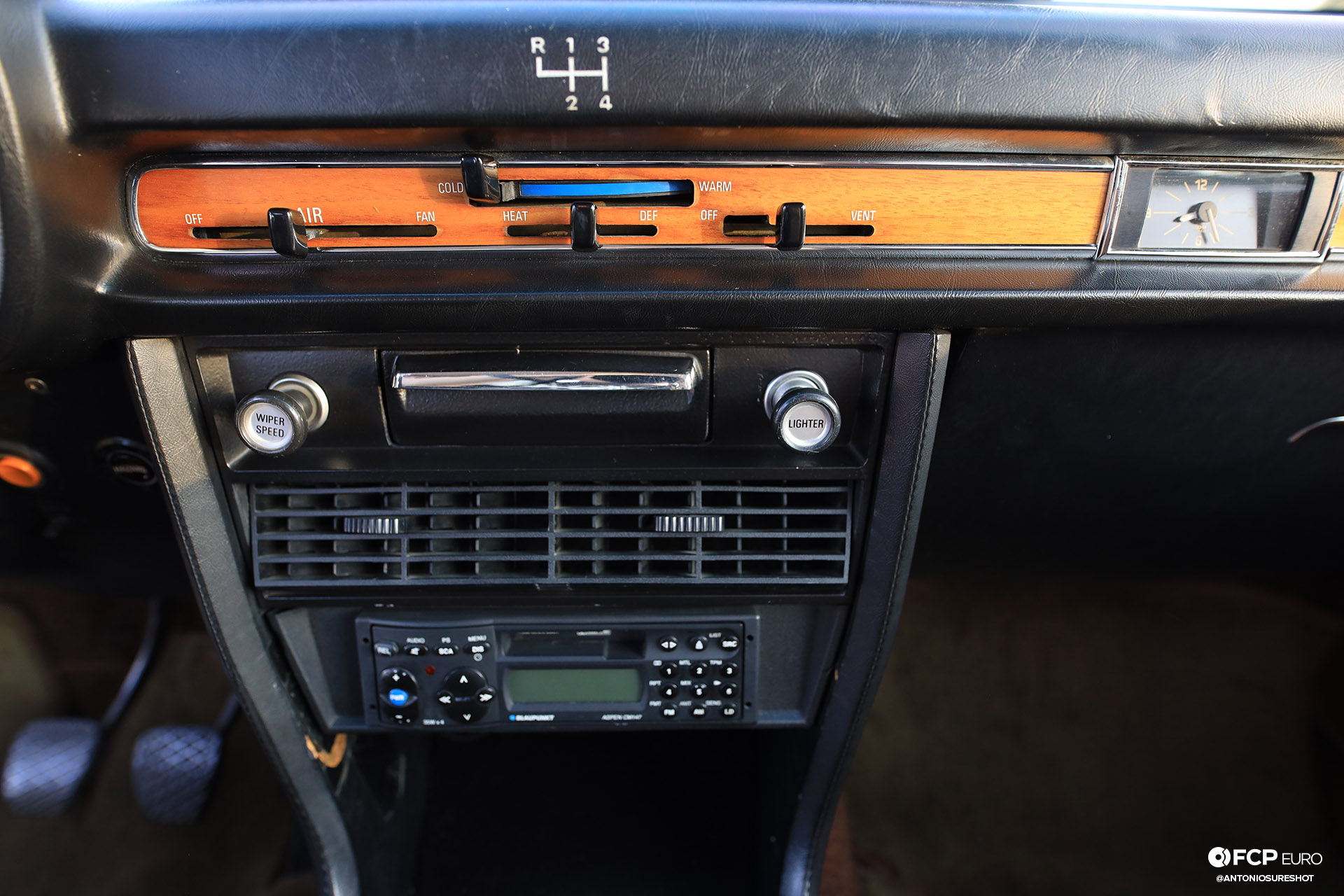
The original HVAC controls are fully functional and entirely intuitive without requiring combined engineering and programming degrees to understand and manipulate. The theme is simple elegance, and it remains consistent throughout.
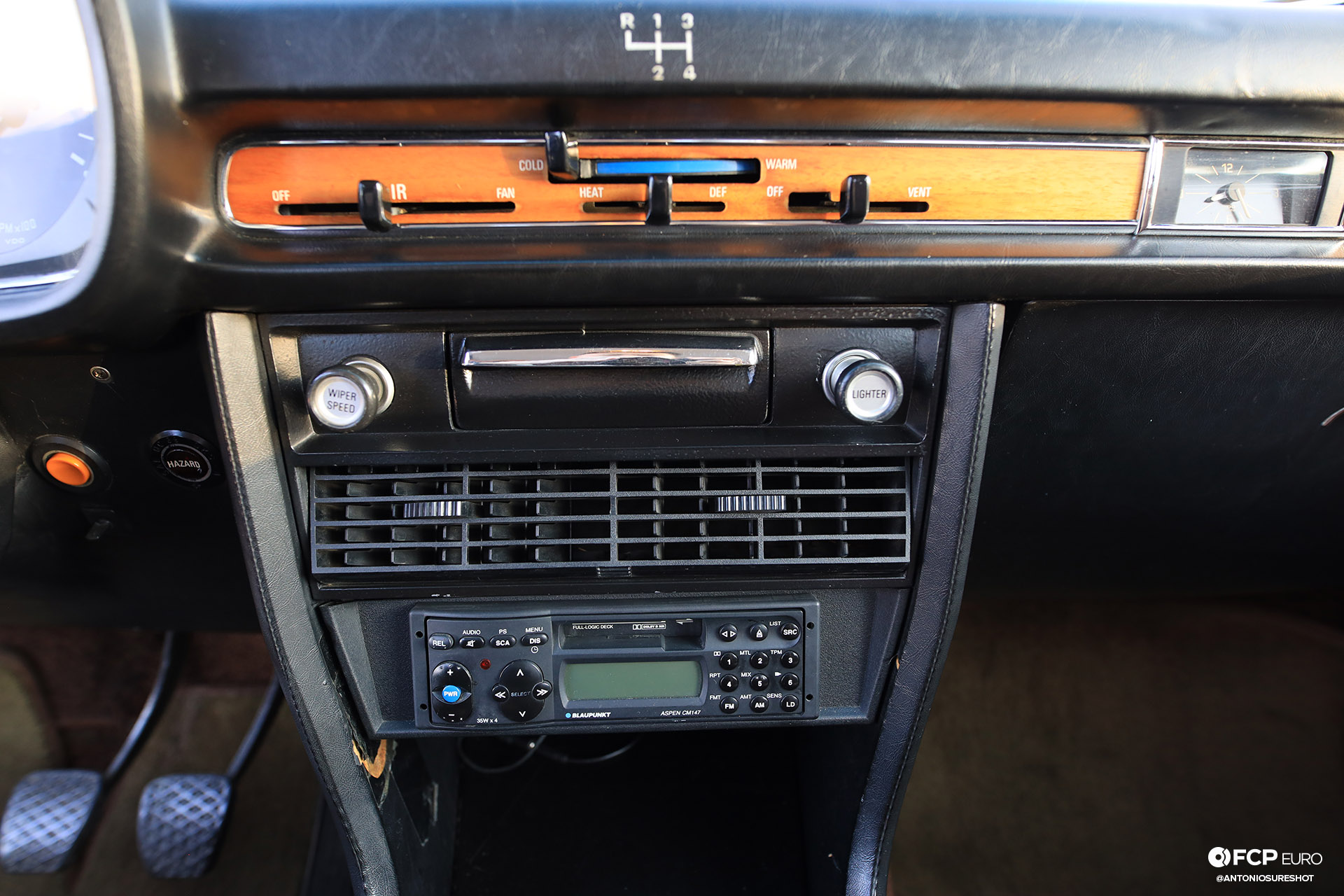
Though Blaupunkt radios were state of the art at the time, this particular radio (with digital screen) is not period correct for the vehicle. That said, this upgraded version is just as true to the underlying theme of the Bavaria as the old school Blaupunkt single DIN units while bringing the vehicle a bit closer to more modern options, like a tape deck with CD changer control.
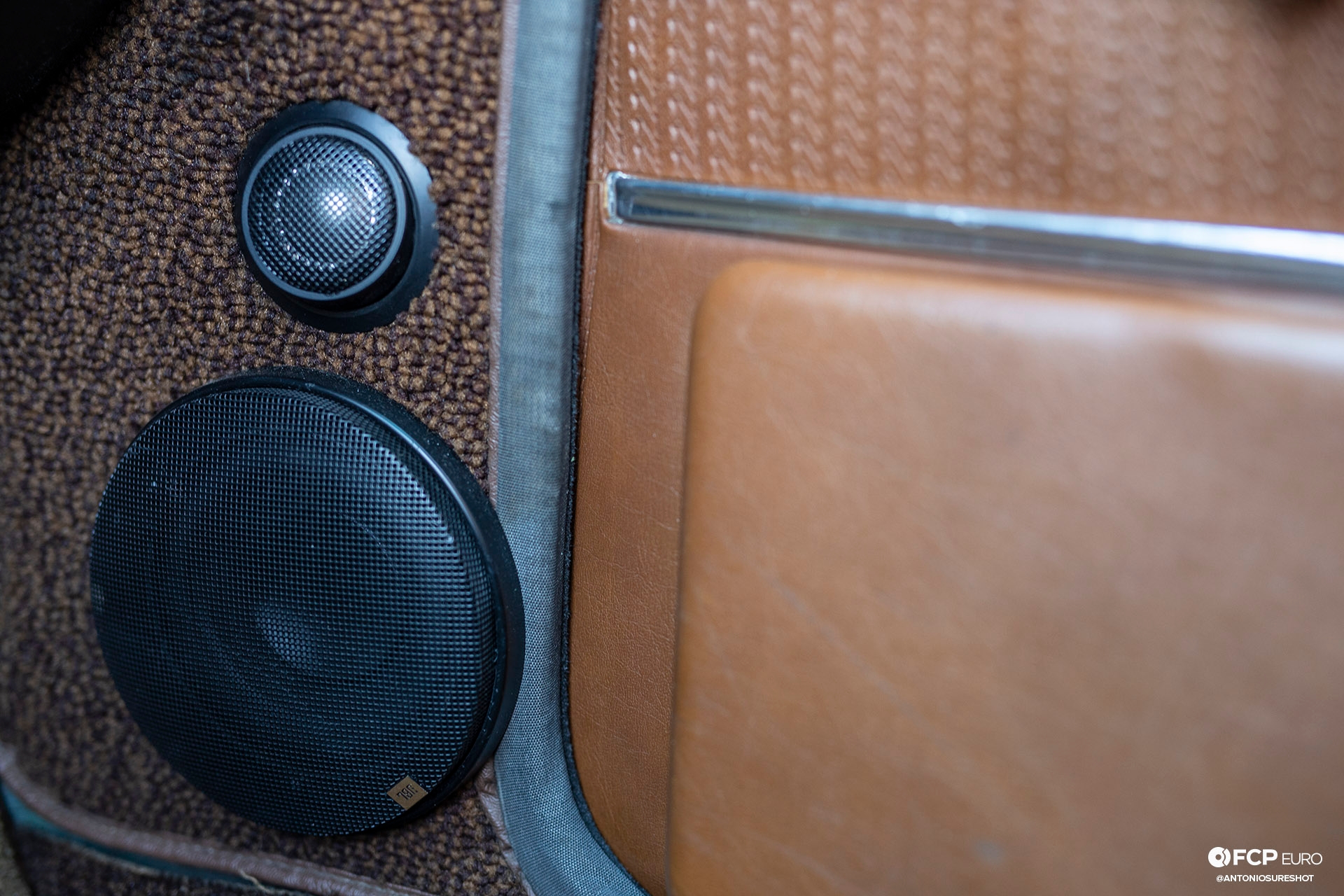
Tim took a leisurely but increasingly more detailed approach to building his Bavaria. He began with subtle and tasteful mods, upgrading with more modern, OEM BMW parts. As bigger mods were completed, the upgrades became more targeted to smaller things like rubber seals, trim pieces, radio, and JBL speaker separates in the kick panel.
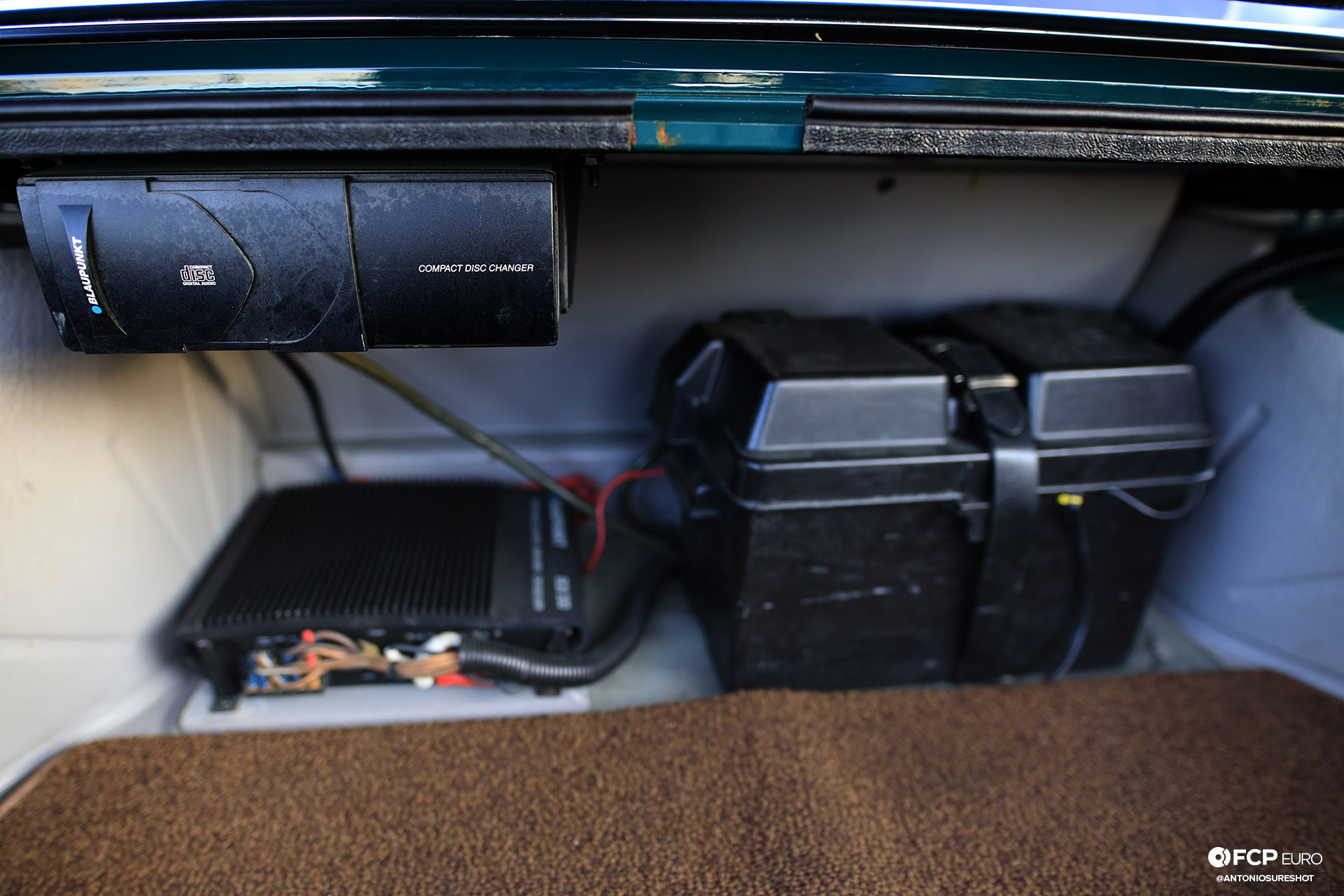
Being picky about the details is what has led this Bavaria to numerous driver’s and people’s choice awards. Even the upgrade to a Blaupunkt CD changer bears witness to the eye for detail and balance. It can be very difficult to graft more modern equipment onto an older platform tastefully.
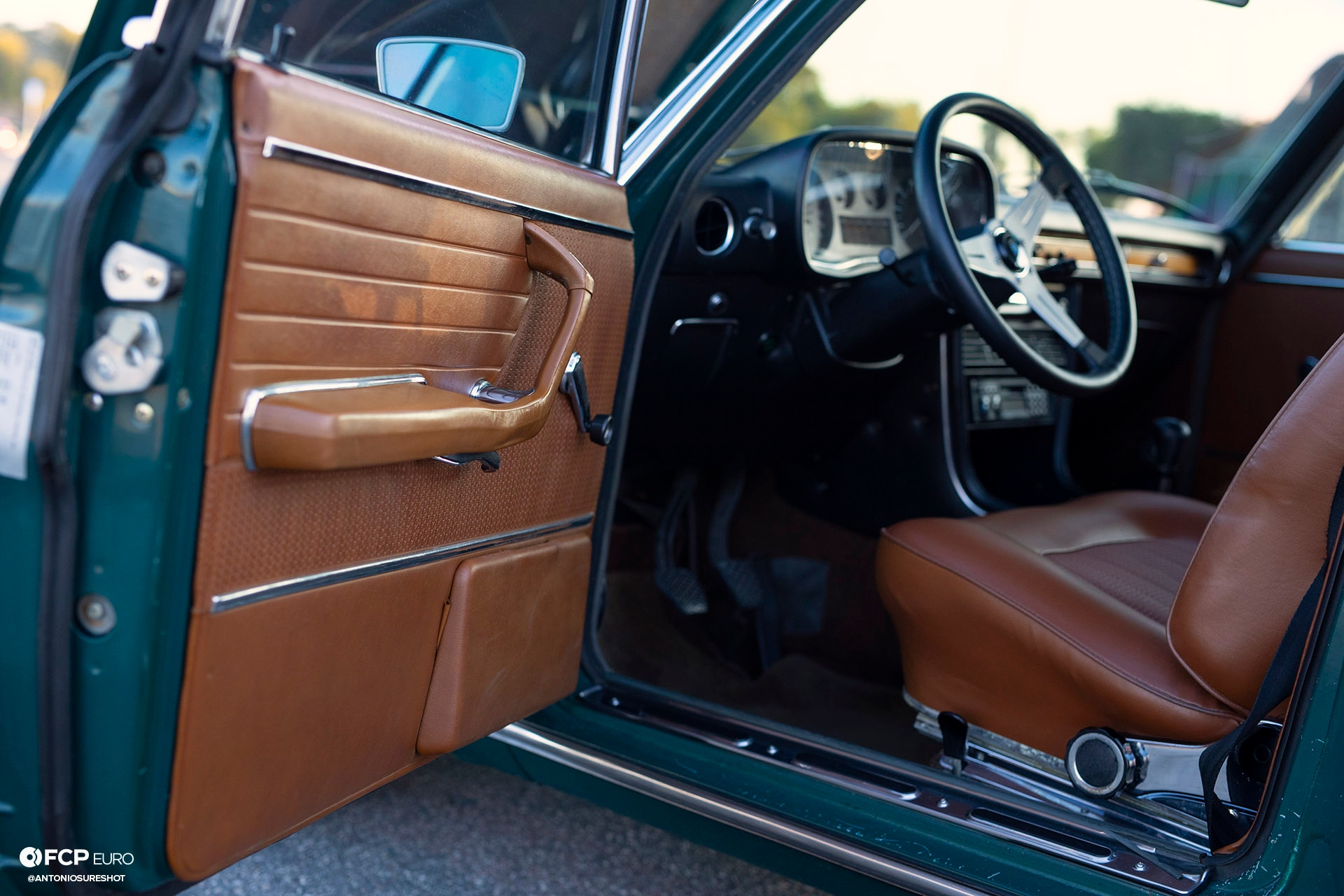
The upgrade to the interior upholstery is one of the more attention-grabbing aspects of this build. The rich cowhide color is such an awesome accent to that classic emerald green. Tim feels that it’s one of the few upgrades that did the most to raise the visceral impact of the vehicle.
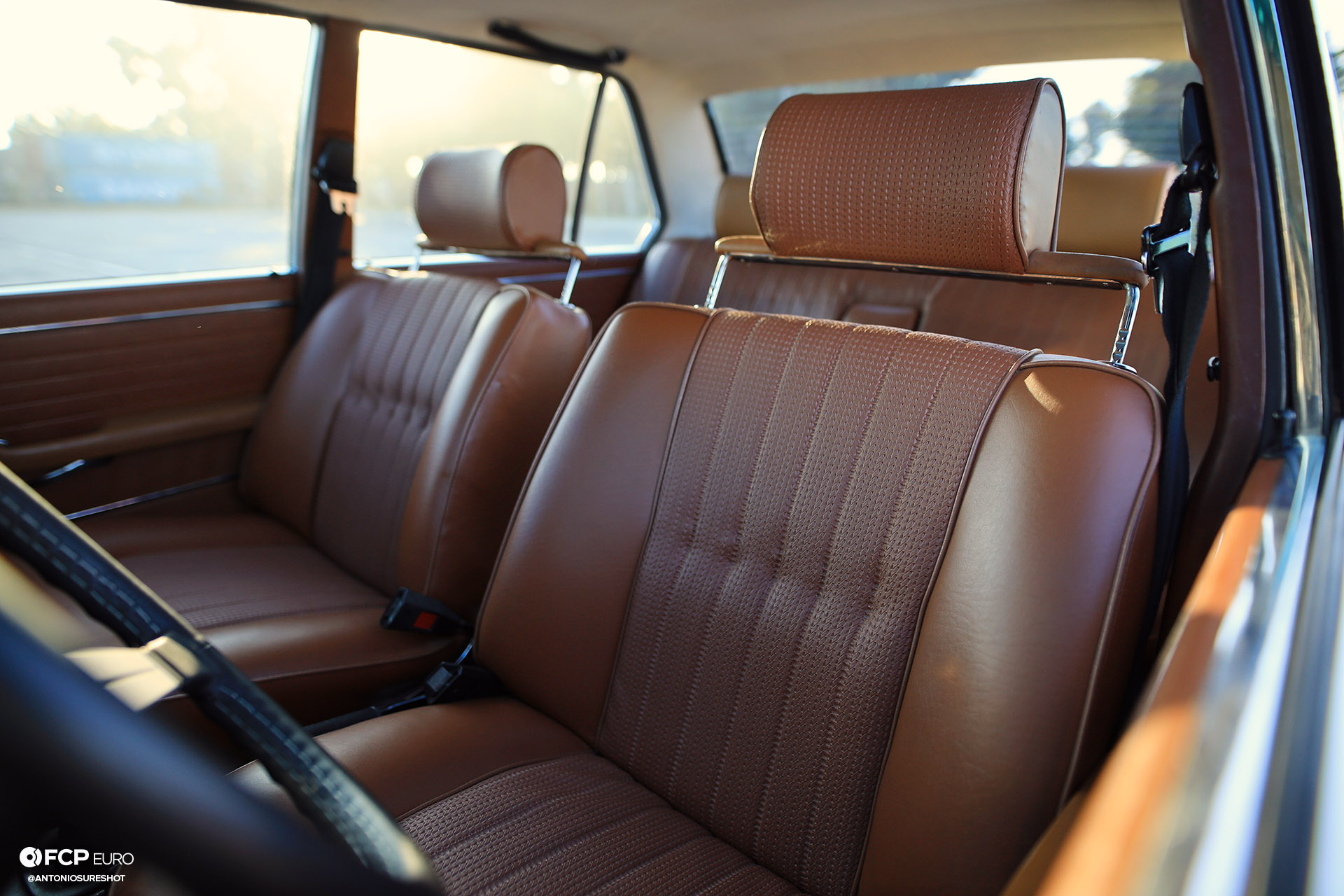
The front seats are an interesting hybrid of race and luxury. With the unique design of the adjustable headrests, which are almost futuristic in appearance, the seats evoke a sense of speed while nestled in comfort. With the large windows and small pillars, the touring sense of the sedan is apparent.
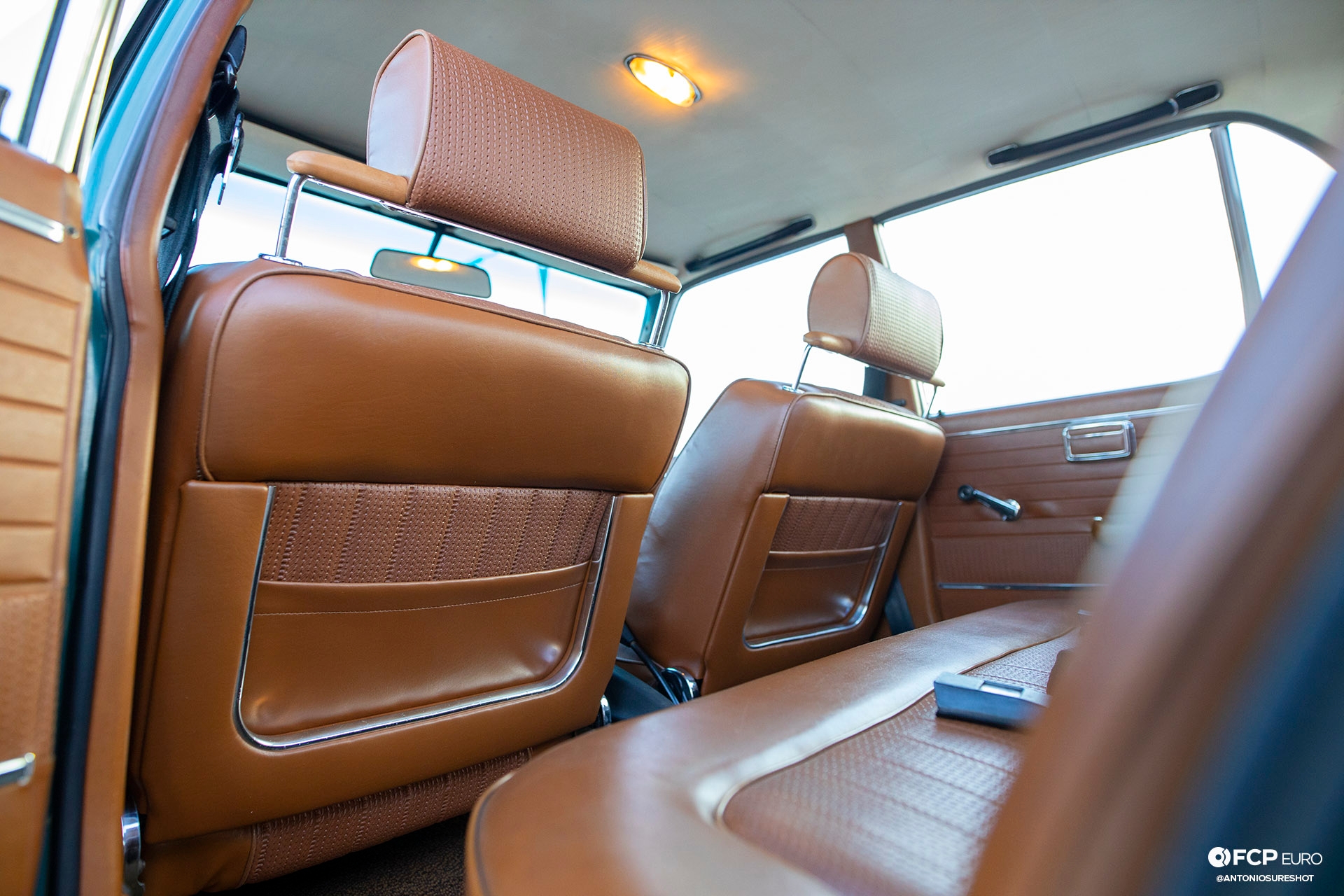
Tim says, “…after the first few months, I really started to love the car, incrementally making improvements to it. At the time of purchase, it was in good condition, but items here and there were beginning to show their age. Overall, my goal has been to restore it to be a very nice driver, but not a concours/show car.” I think he managed to do both.
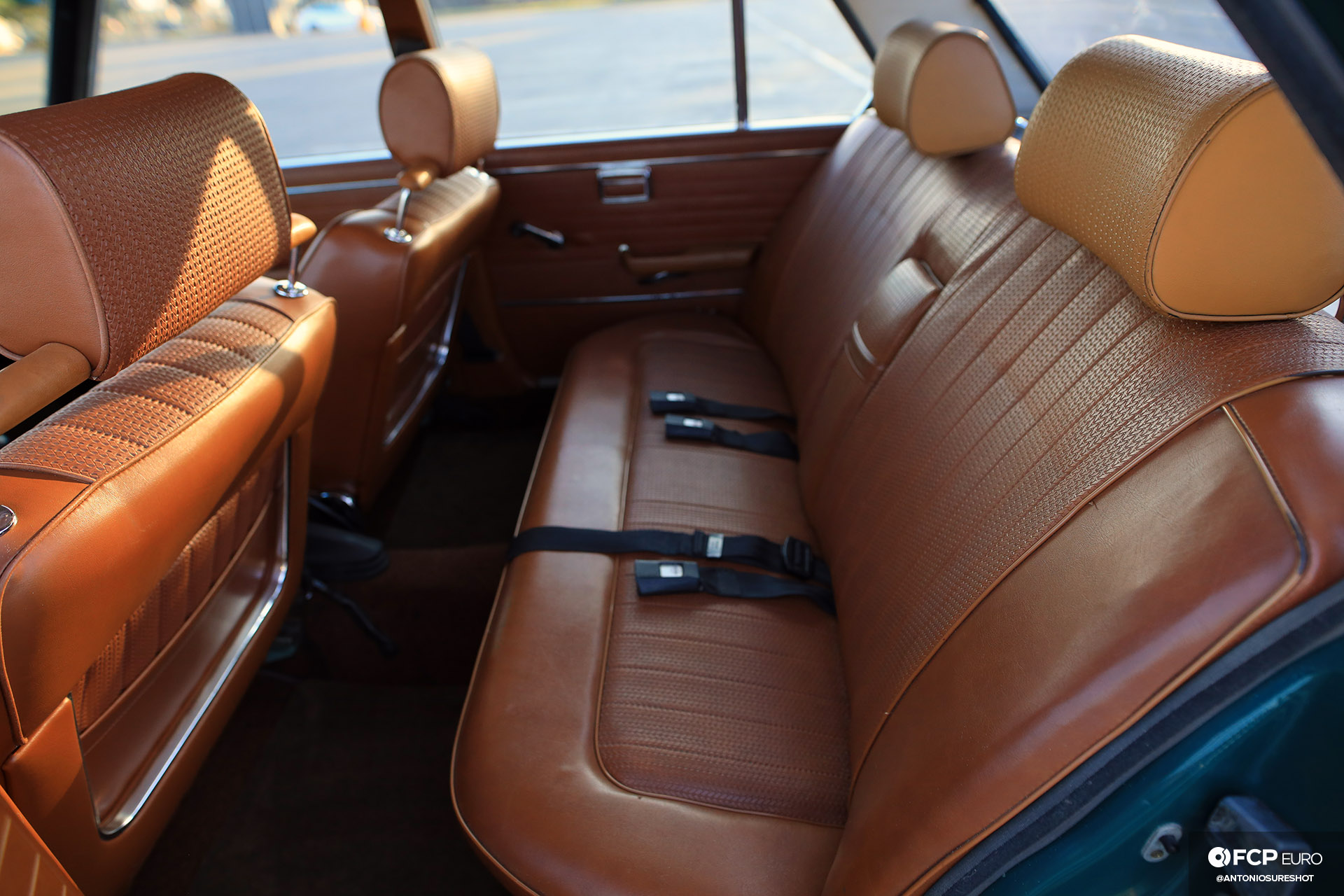
Clearly, this has been a labor of love. It is apparent in the obvious deliberation that went into the planning of the build, the establishment of the overarching theme, the patience and painstaking attention to detail, and the careful assembly of the parts. The result is flowing, clean lines - a place for everything and everything in its place.
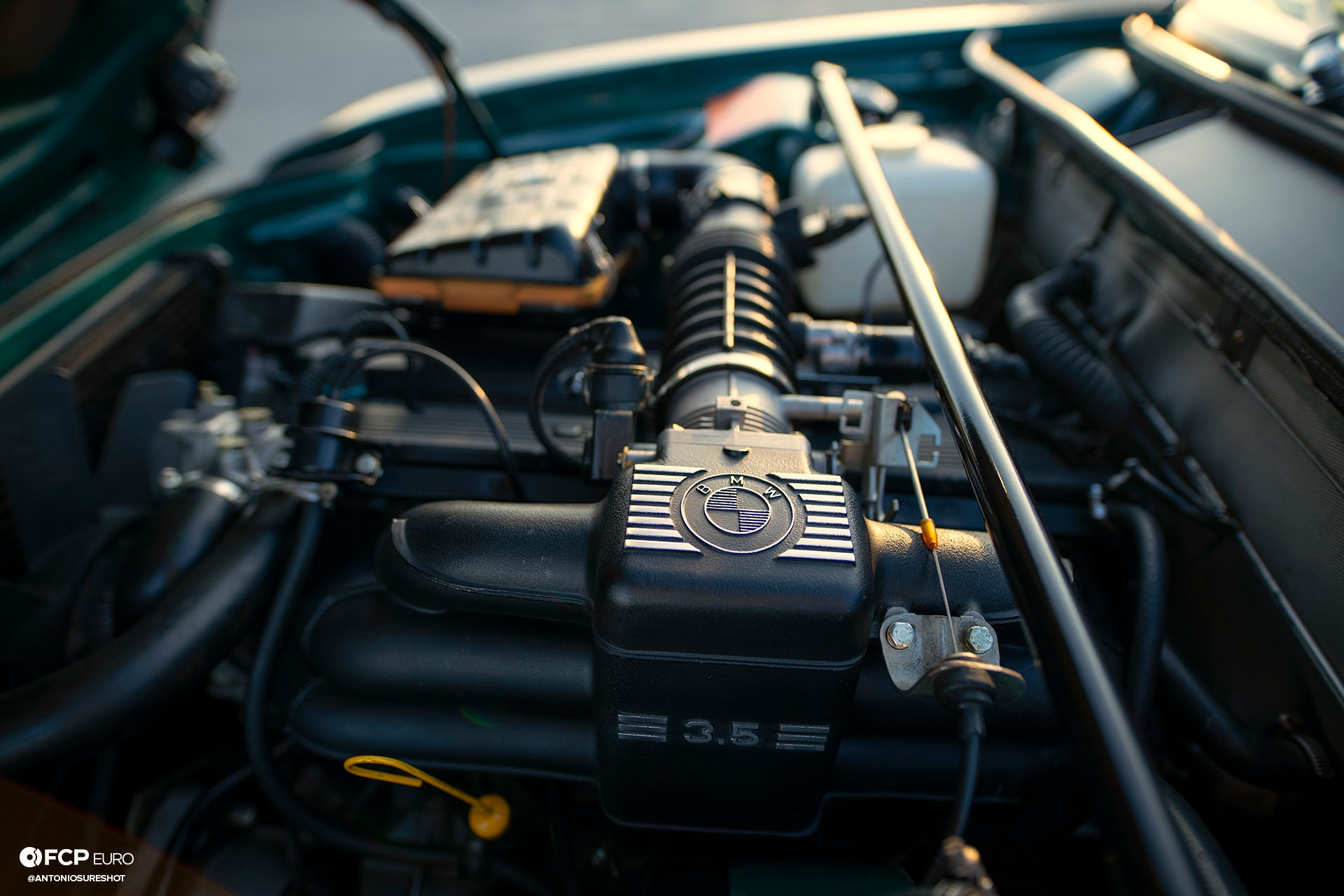
The stock engine for the 1972 Bavaria was a carbureted M30B30. This was the year that the engine was increased in size to 3 liters. However, Tim decided to upgrade the M30B30 to an M30B35 (3.5) taken from a 1988 735i. This took the vehicle from its original 190hp / 185 lb-ft of torque to a healthier 208 hp/225 lb-ft of torque in stock configuration before upgrades.
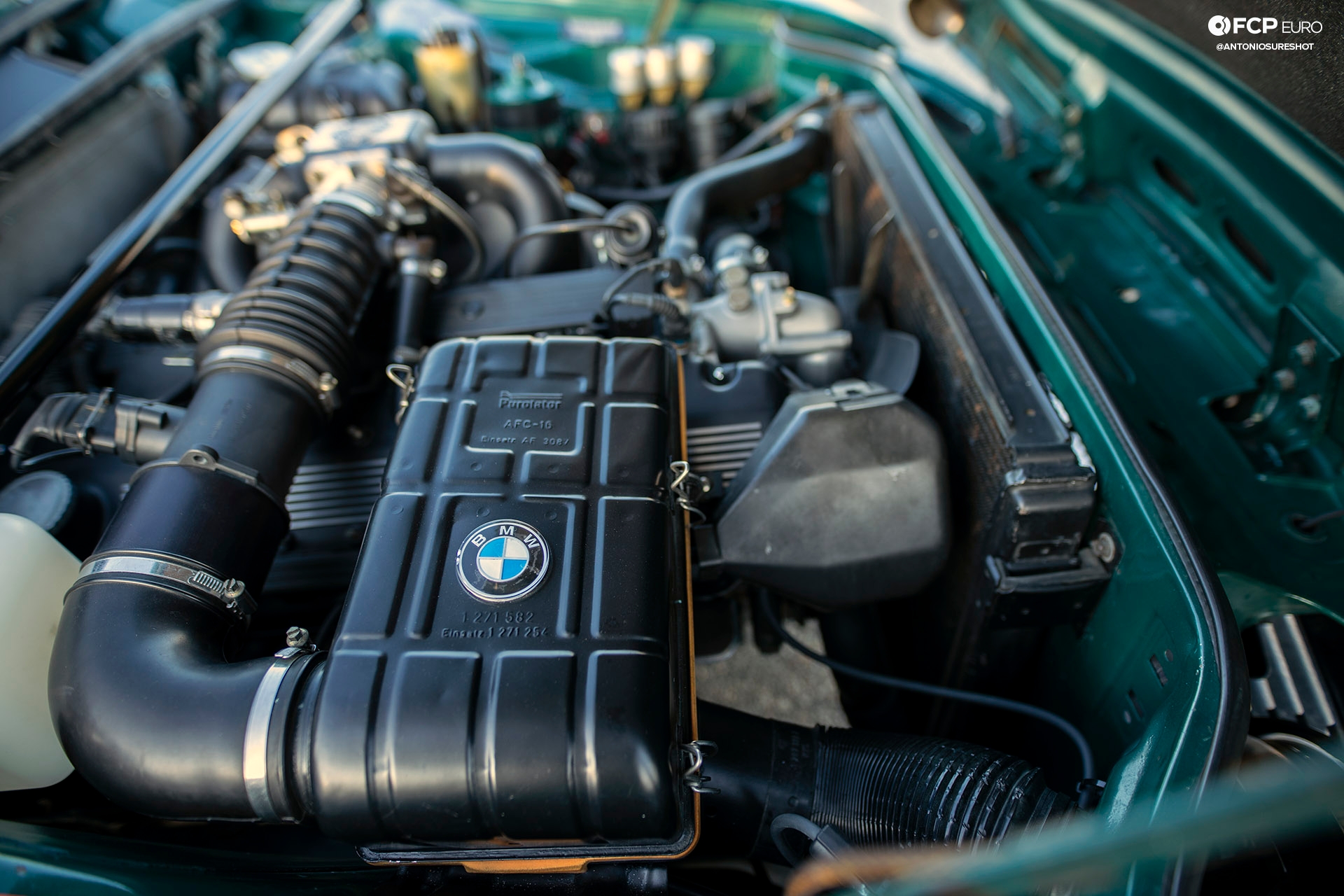
The 3.5 was rebuilt with 10.5:1 Paul Burke forged pistons and a Paul Burke N21 Street Cam as well as a Long Tube header. It also had a full upgrade through Performance Electronics with a Motronic 1.3 conversion and a Miller WAR programmable chip. Although the upgrades were made by other customizers, Tim did the full installation himself.
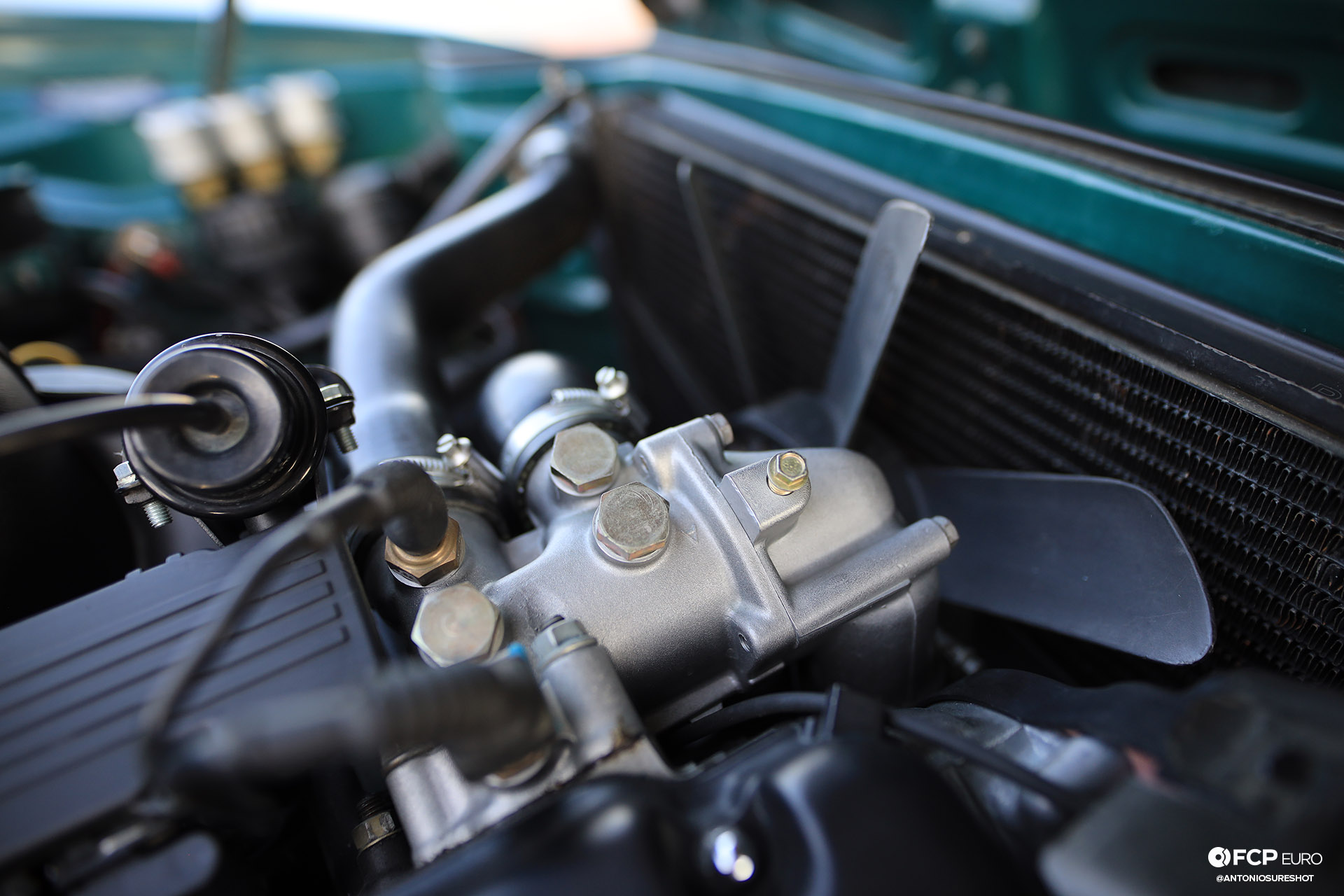
For Tim, it was the unique and classic BMW style that attracted him to the Bavaria, and the rarity of this particular find made it irresistible. That, and the level of care with which the car had been maintained.
When it was time to replace the factory thermostat housing, Tim decided to clear ceramic coat the entire housing assembly and purchase new hardware for it so it would look perfect.
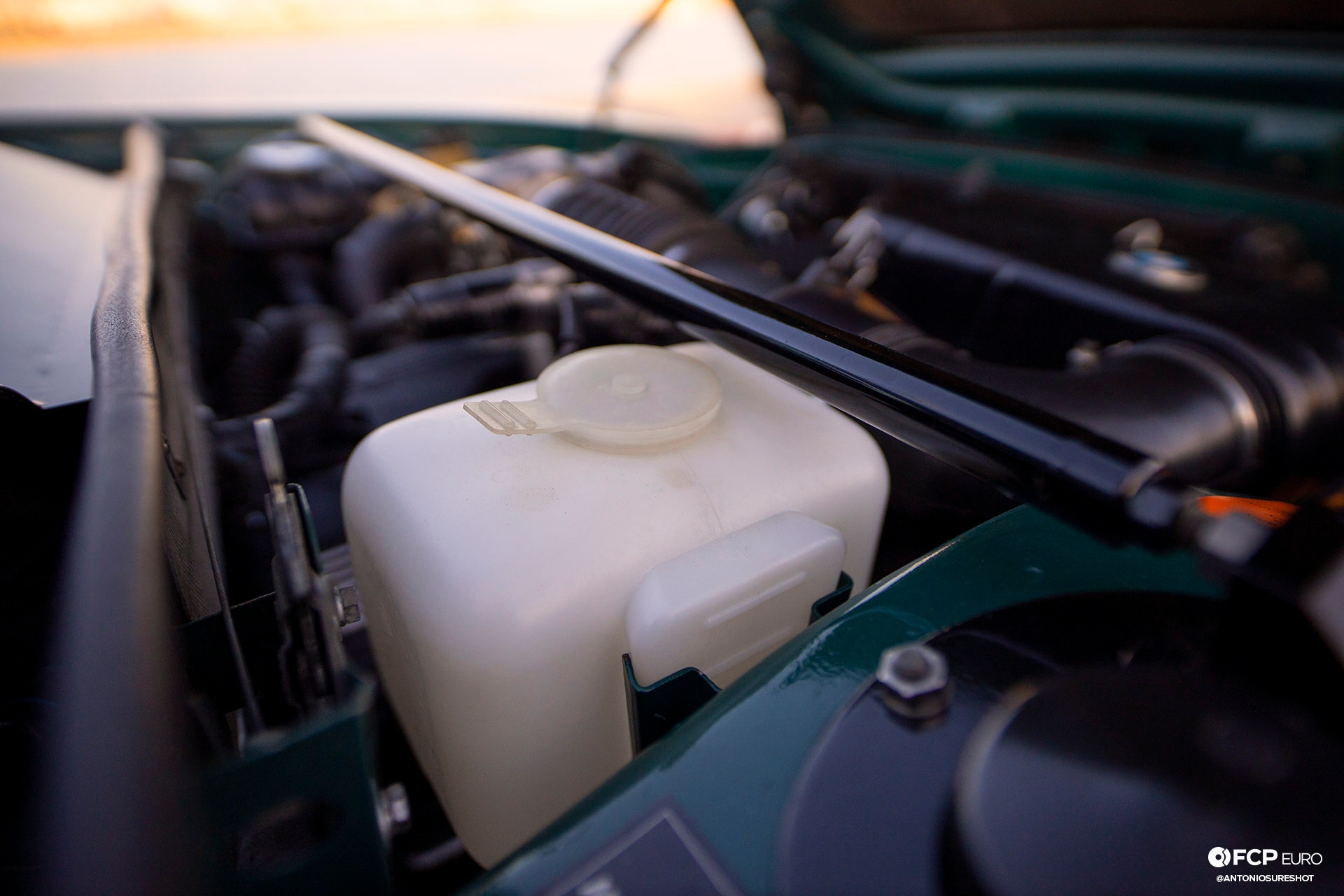
Since there isn't much aftermarket support for the Bavaria, the previous owner had this strut bar custom made. He was able to improve the chassis stiffness a bit without sacrificing ride quality. As an upgrade to the overall look of the engine bay, Tim also replaced the 47-year-old windshield washer reservoir with a brand new one.
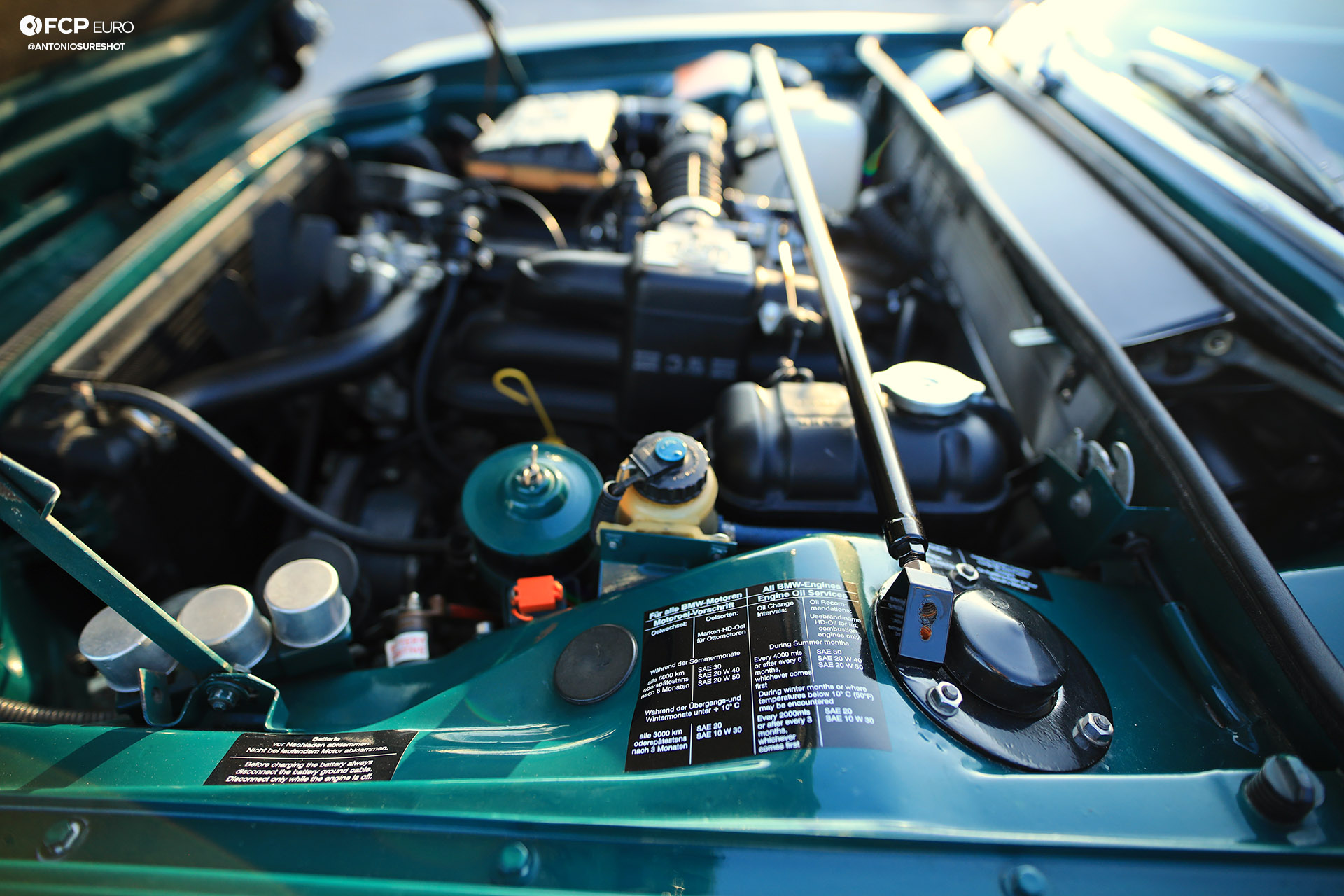
The beauty of embarking upon any longterm project such as this one is that one learns so much about the vehicle and about oneself. Tim had wrenched away on cars over the years, but this was his first time partially assembling an engine, removing and installing it, figuring out the wiring for the fuel injection system to come and all of the rest.
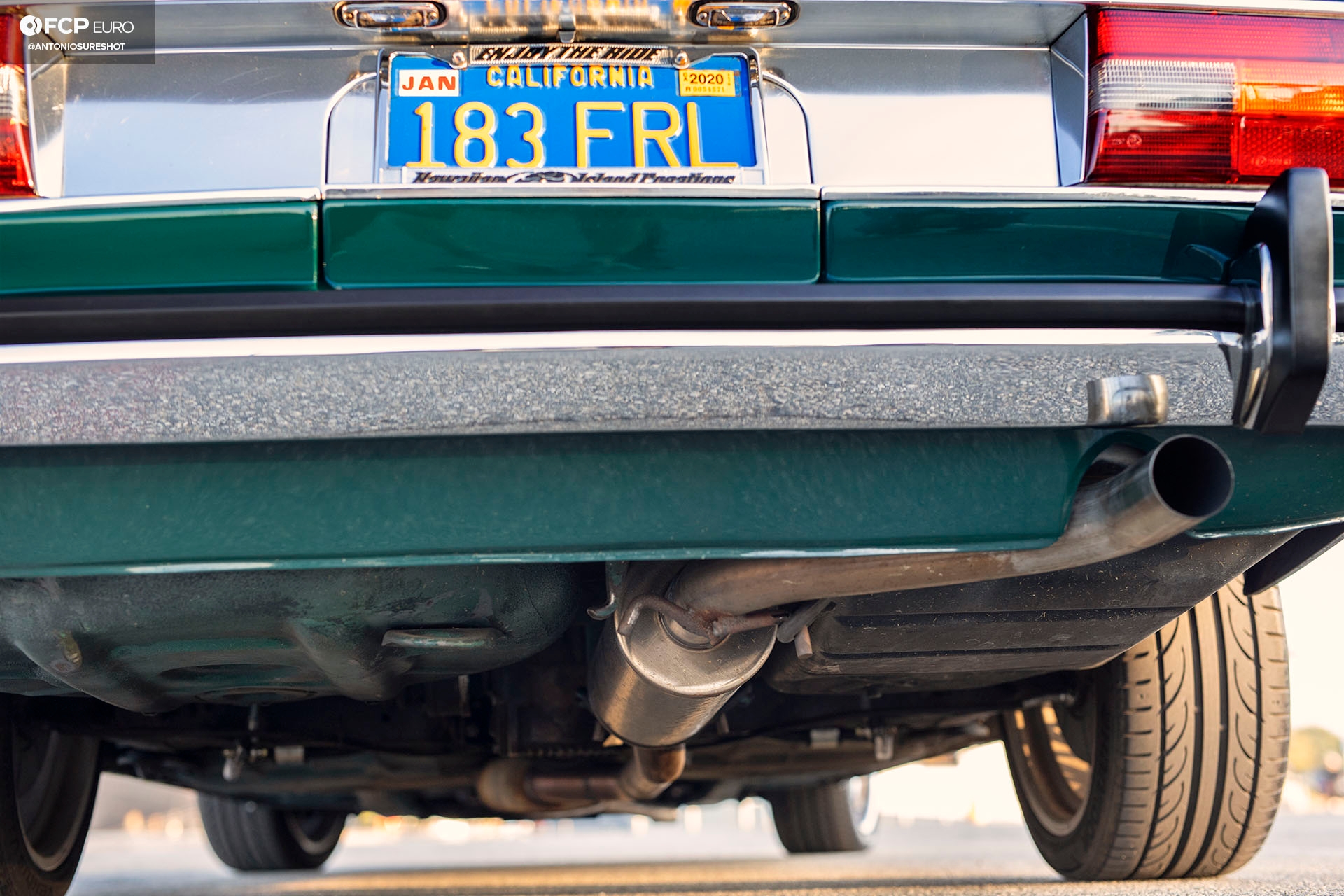
Along with the interior upholstery upgrade and some touch up to the paint, the engine upgrades, and install brought the build to its present, award-winning level. This custom made 2.5" header back exhaust with a Magnaflow oval muffler as a center section, and a Magnaflow round muffler in back brings that same level of detail to the undercarriage. As the license plate frame suggests, he can now commit to Enjoy the Ride - that is, until some new minor detail draws his attention.

More than just the satisfaction of owning such a beautiful vehicle, Tim (pictured here) looks to the intangibles that accompany ownership. “Besides the car itself, I've really enjoyed the vintage BMW scene, BMWCCA events, other events such as ‘Legends of the Autobahn’ during Monterey Car Week, and most importantly, the friends I've made along the way."
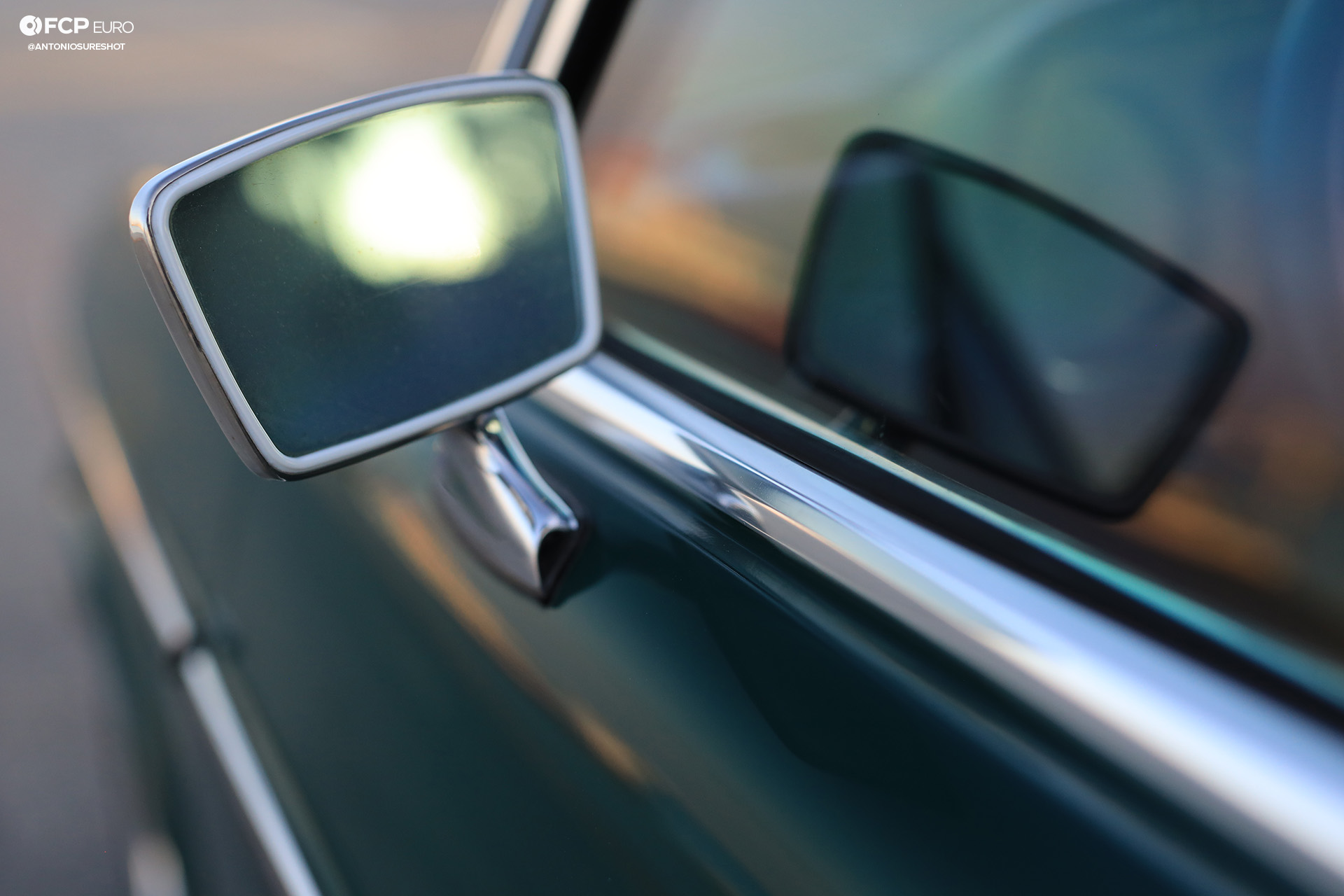
The chrome detailing adds so much sparkle to the overall effect of this Bavaria, but it is this single, driver’s side-mounted, side-view mirror that introduces such a cool example of the beauty of minor asymmetry. With no matching, passenger-side mirror, it’s basically the beauty mark of car design - the functional, asymmetric accent that pulls the design together. Since the rubber trim molding that surrounds the mirror glass was weathered due to age, Tim decided to replace the rubber trim with this white reproduction rubber piece, sourced from England.
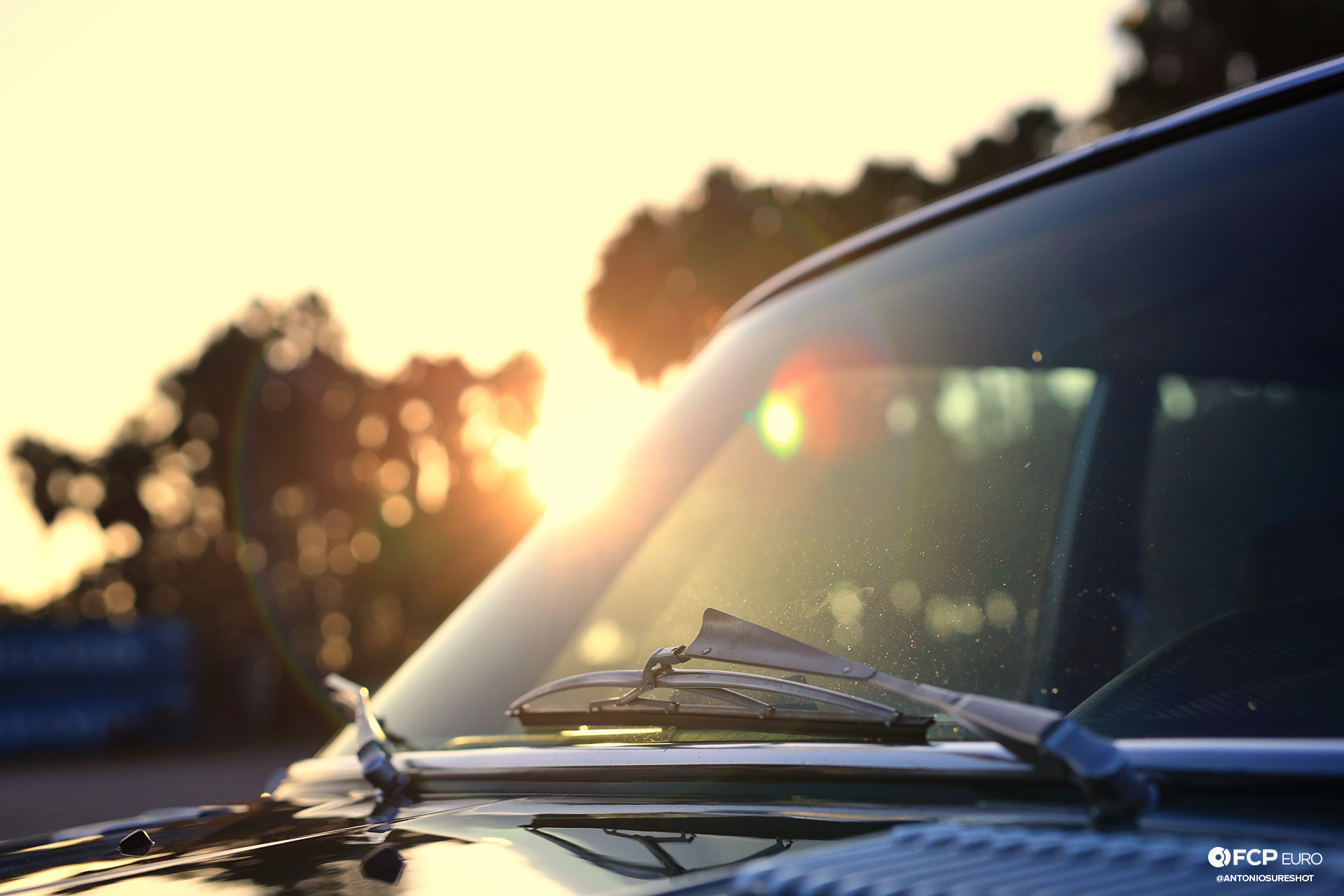
In deference to maintaining as much of the original car as possible, Tim chose to refurbish the stock windshield wiper array. They look so pristine, we thought they had been replaced with aftermarket replicas. Nothing beats the sight of a classic basking in the light of an appreciative sun.
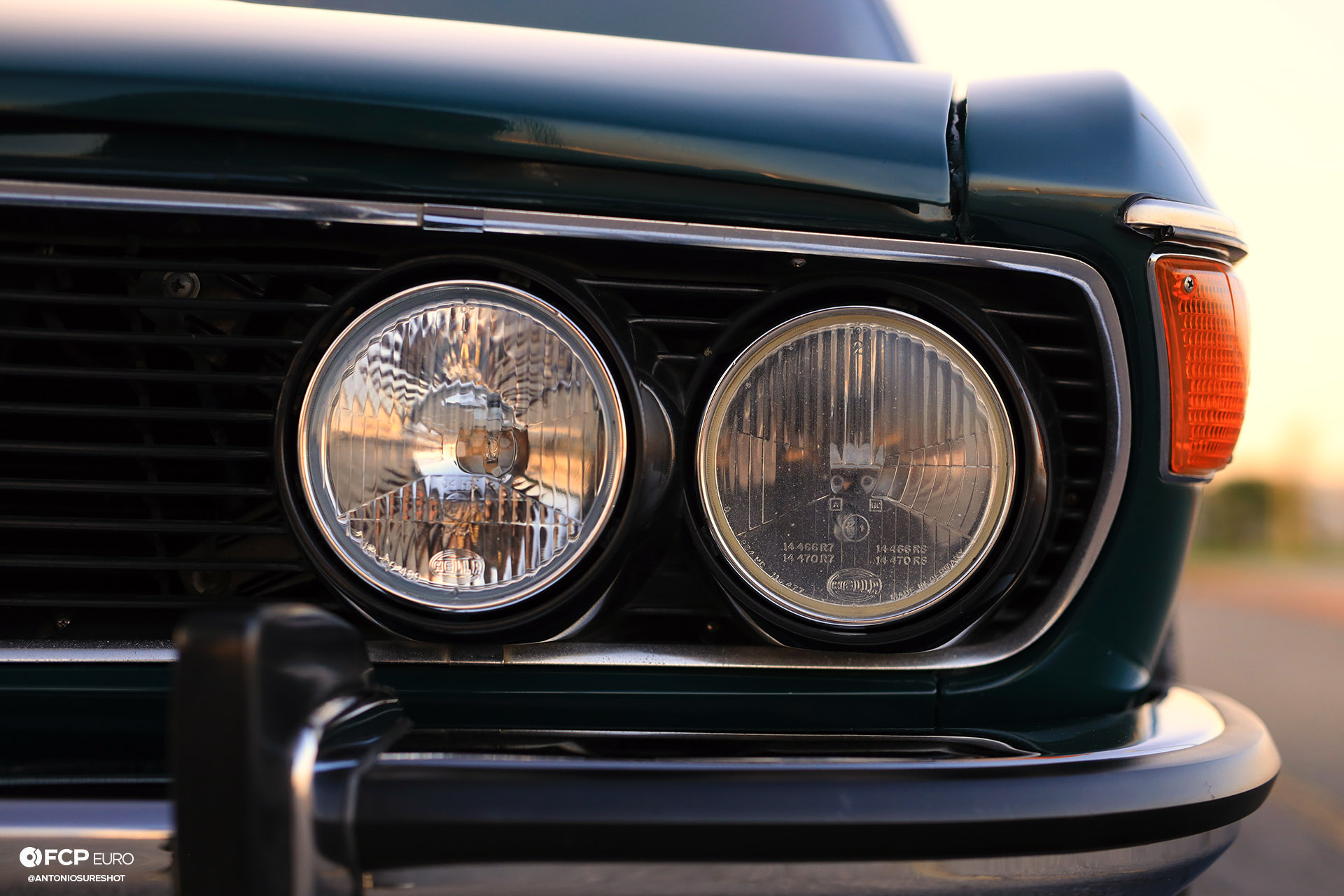
From the upgraded twin Hella H4 headlamps to the spacious, luxe interior, the E3 Bavaria DNA was groundbreaking and marque-defining. Judging by all of the awards and accolades showered upon this particular representative of the species, it’s clear that those genes have aged very well indeed.
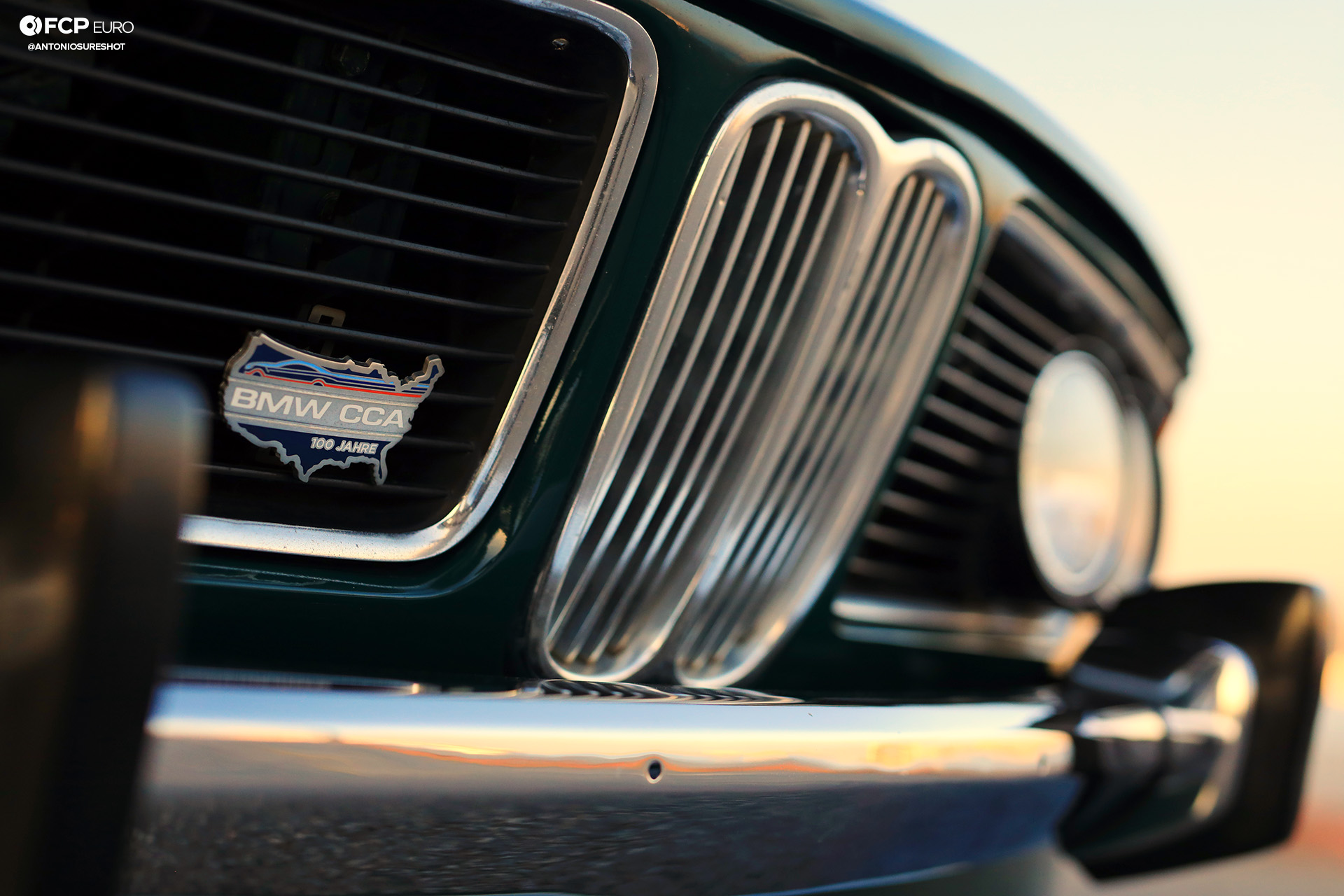
This BMW Kidney grille will always be iconic. The Bavaria’s version is early enough in the evolution of the design to have the conjoined sections still. That said, few designs have been so distinctive and easily recognizable, and few car clubs have been so storied and wide-reaching as the BMW CCA, which just celebrated its 50th anniversary in 2019.
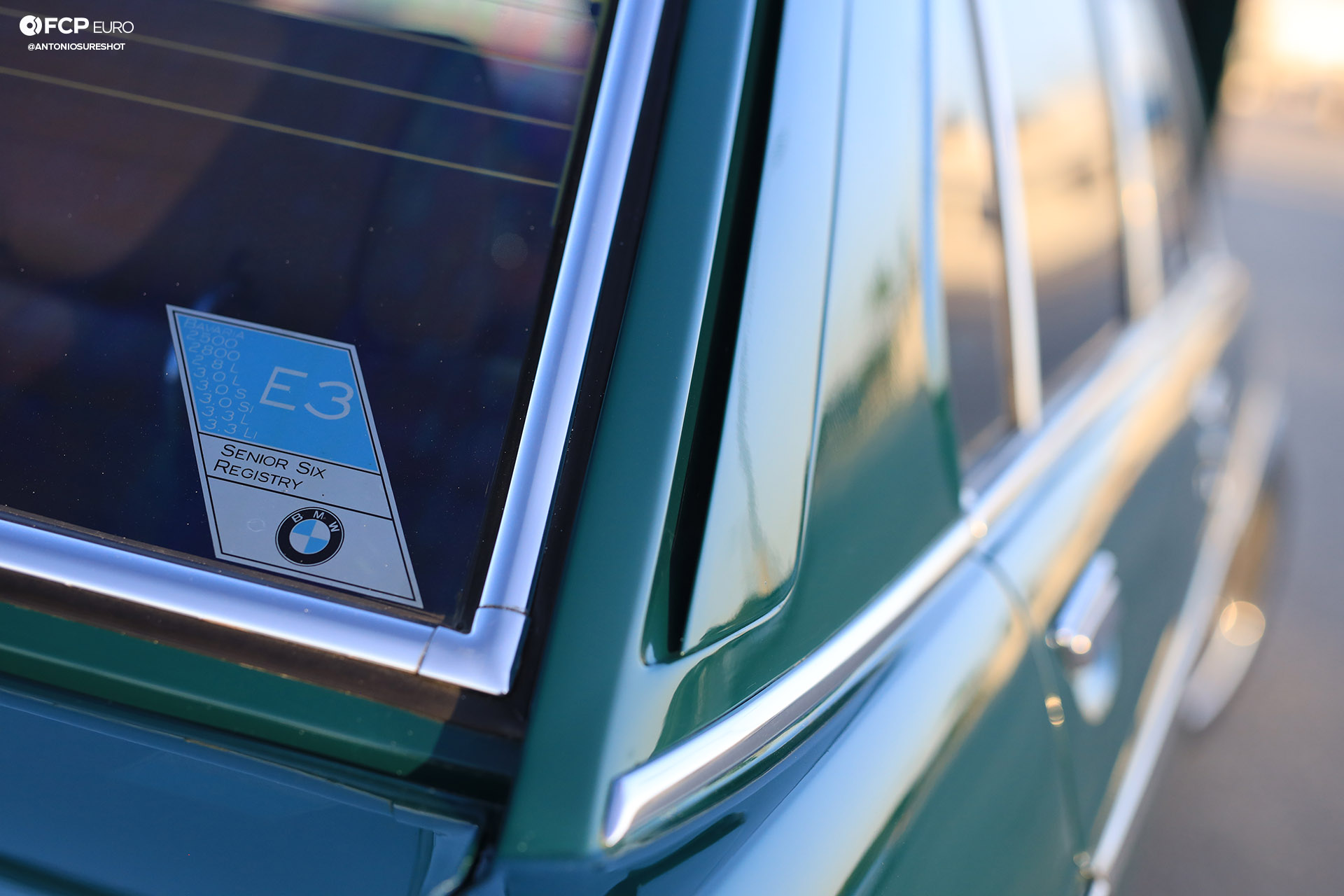
Everything ages. The process may happen at different rates, but, in the end, nothing and no one beats Father Time. The Senior Six Registry is dedicated to delaying that process through databasing and resource sharing and through “the location and documentation of all 24,797 E3s imported by Max Hoffman into the United States.” They are automotive conservationists.
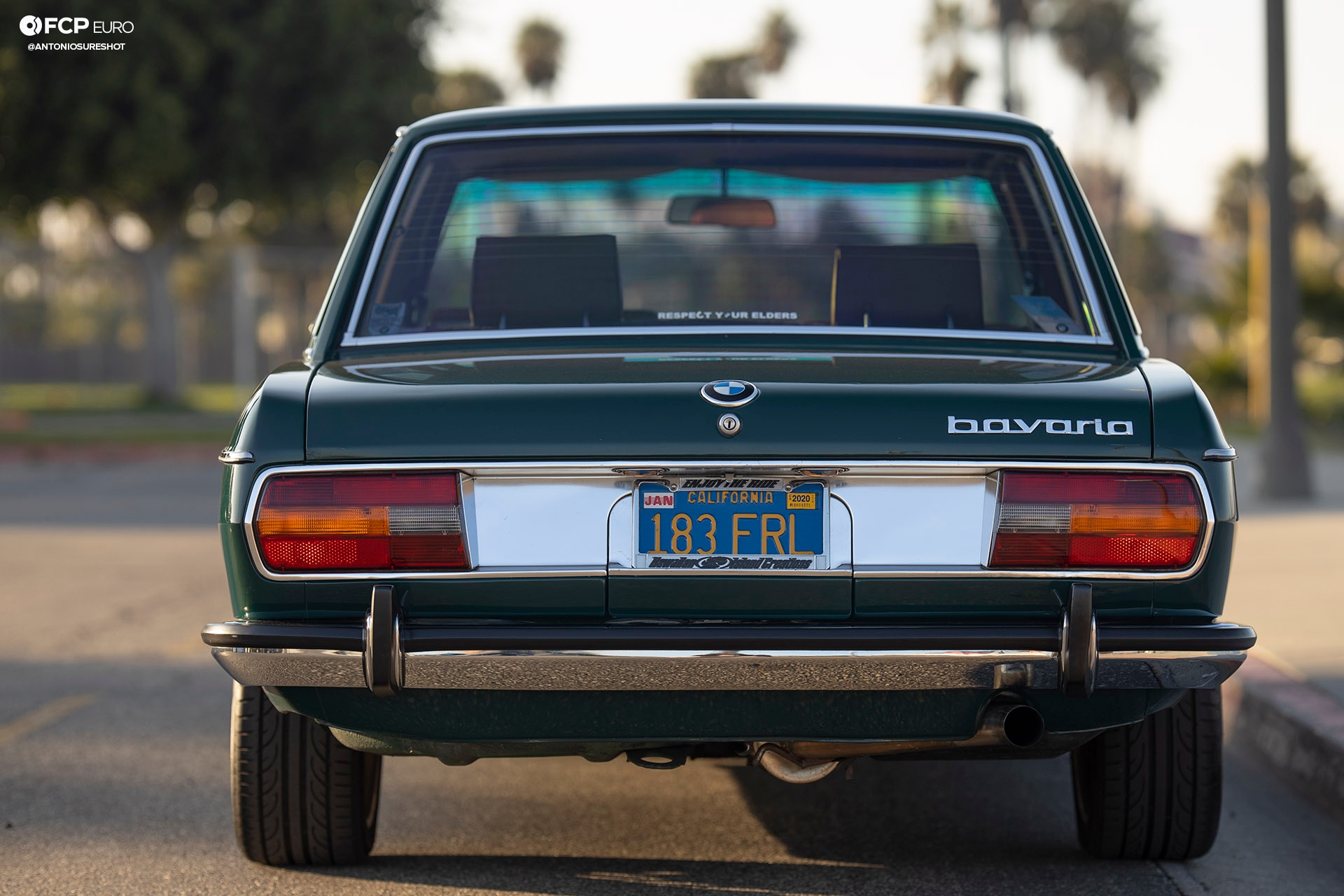
The “Respect Your Elders” sticker is so appropriate for this vehicle in a myriad of ways. On one level, the E3 is an early ancestor of the modern, high-performing BMW sedan. They carry its DNA and that is worthy of respect. On a deeper level, this vehicle has also been a form of bonding, and homage, to Tim’s father. It is a tangible symbol of the love and respect one should have for one’s elders.
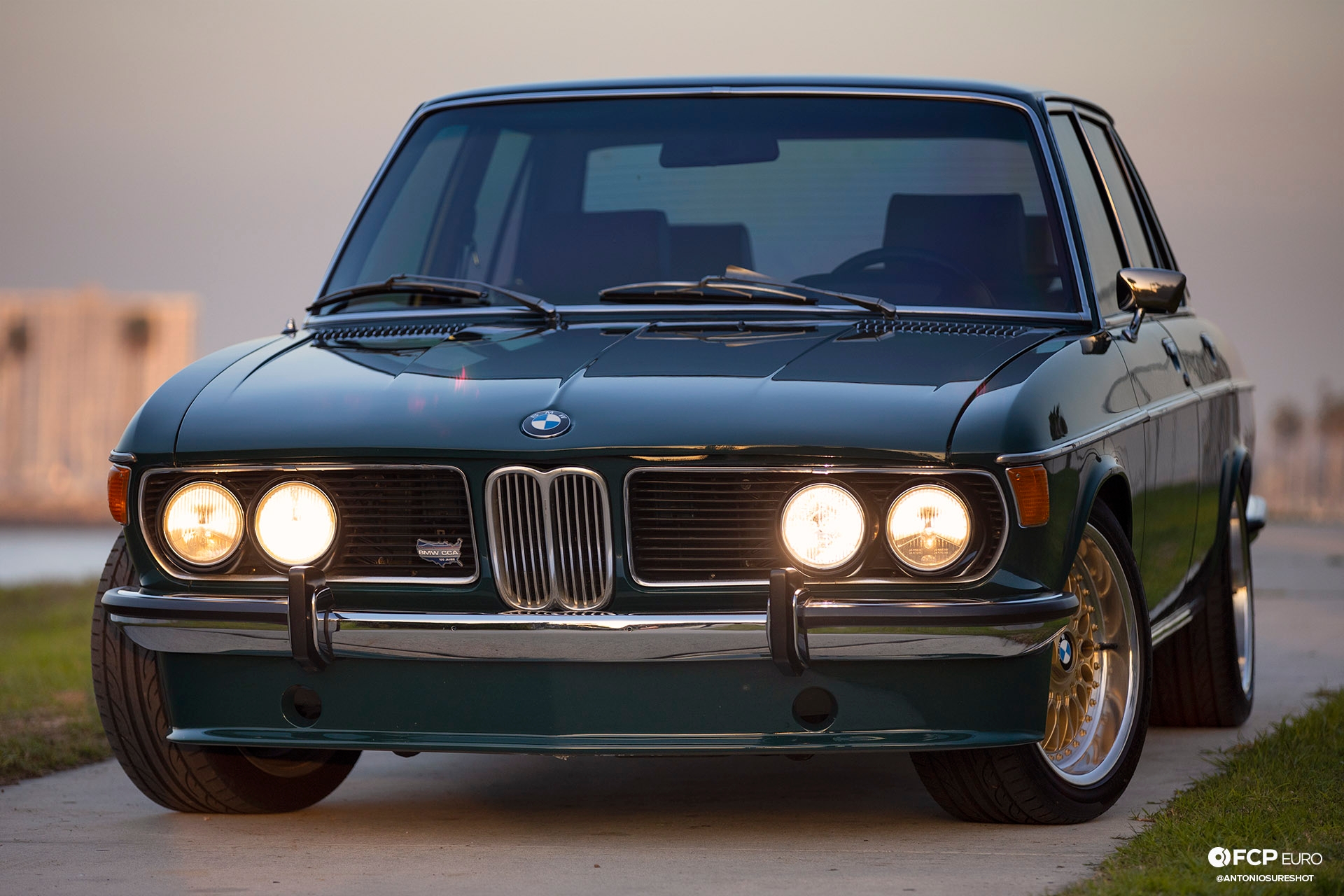
Maintaining respect and honor for those who came before us is such a valuable and deeply human, cultural trait. It’s literally in our DNA. The most inspirational part of this story is in the arc of intersections between BMW and family. A valuable car becomes priceless in the face of legacy. Tim’s dad has been with him every step of the way. “I look at my Bavaria as a father-son project, as my dad has assisted me with many of the large projects, and it's been a great experience for both of us.”
Thank you, Tim - for this beautiful car…and for the lesson.
Story by Avon Bellamy
Photos by Antonio Alvendia
If you like this BMW Bavaria, you can find additional BMW-related content at bmw.fcpeuro.com, as well as more build features like this one, here. If there's anything specific you would like to see, or if you have any questions/comments, leave them in the comments section below.


